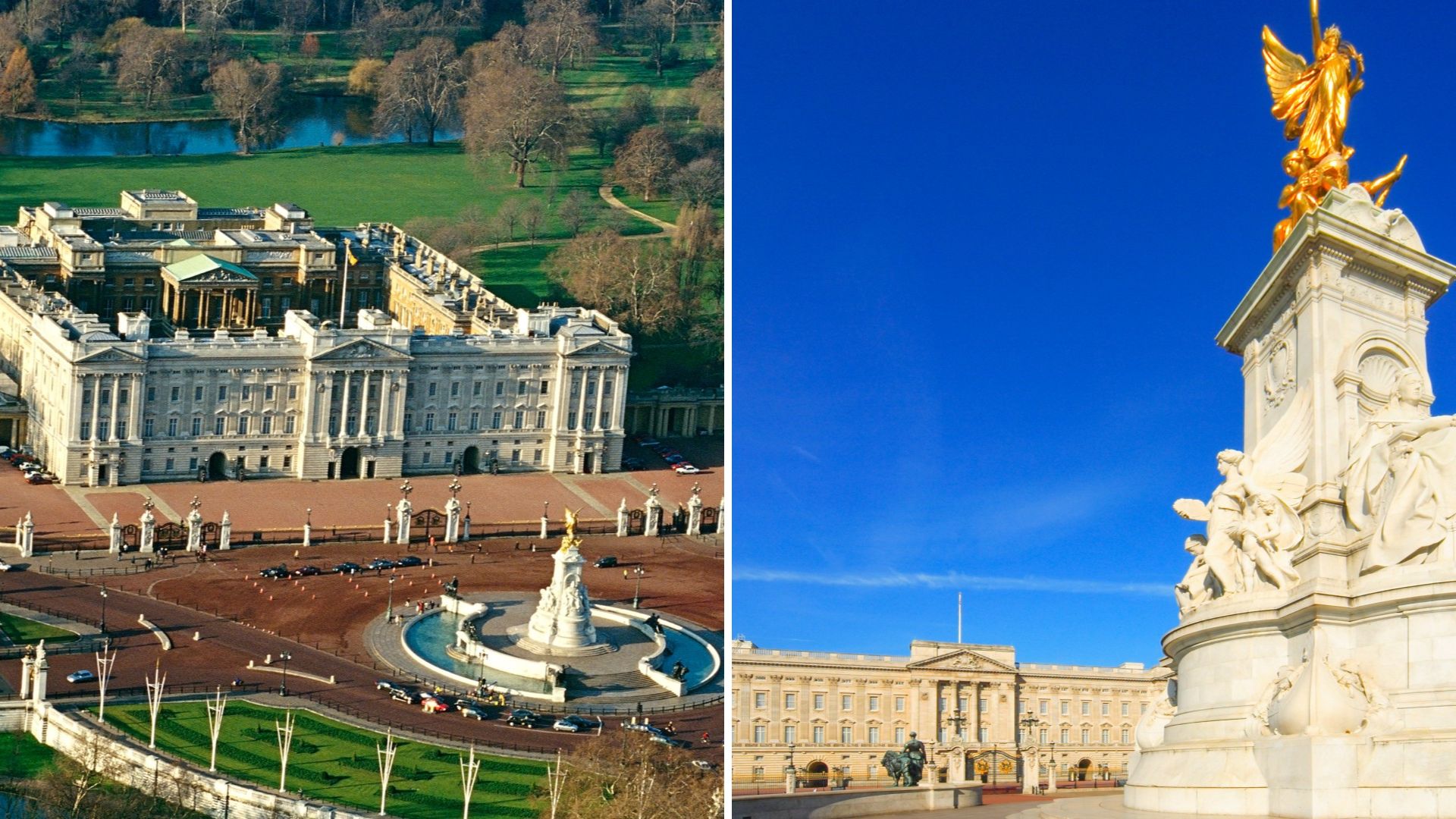
SW1A 1AA. You might not know this immediately, but you know this address. It's the postcode of Buckingham Palace, the King's official London residence and a working royal palace.
Surrounded by some of London's finest parks, Buckingham Palace is a must-see destination for tourists coming from all over the world (and even London natives).
But how well do you really know one of the most photographed and visited buildings in the world? Find out with these unusual and interesting facts about the most iconic royal residence.
32 facts about Buckingham Palace
It's served as the official residence of the monarch since 1837
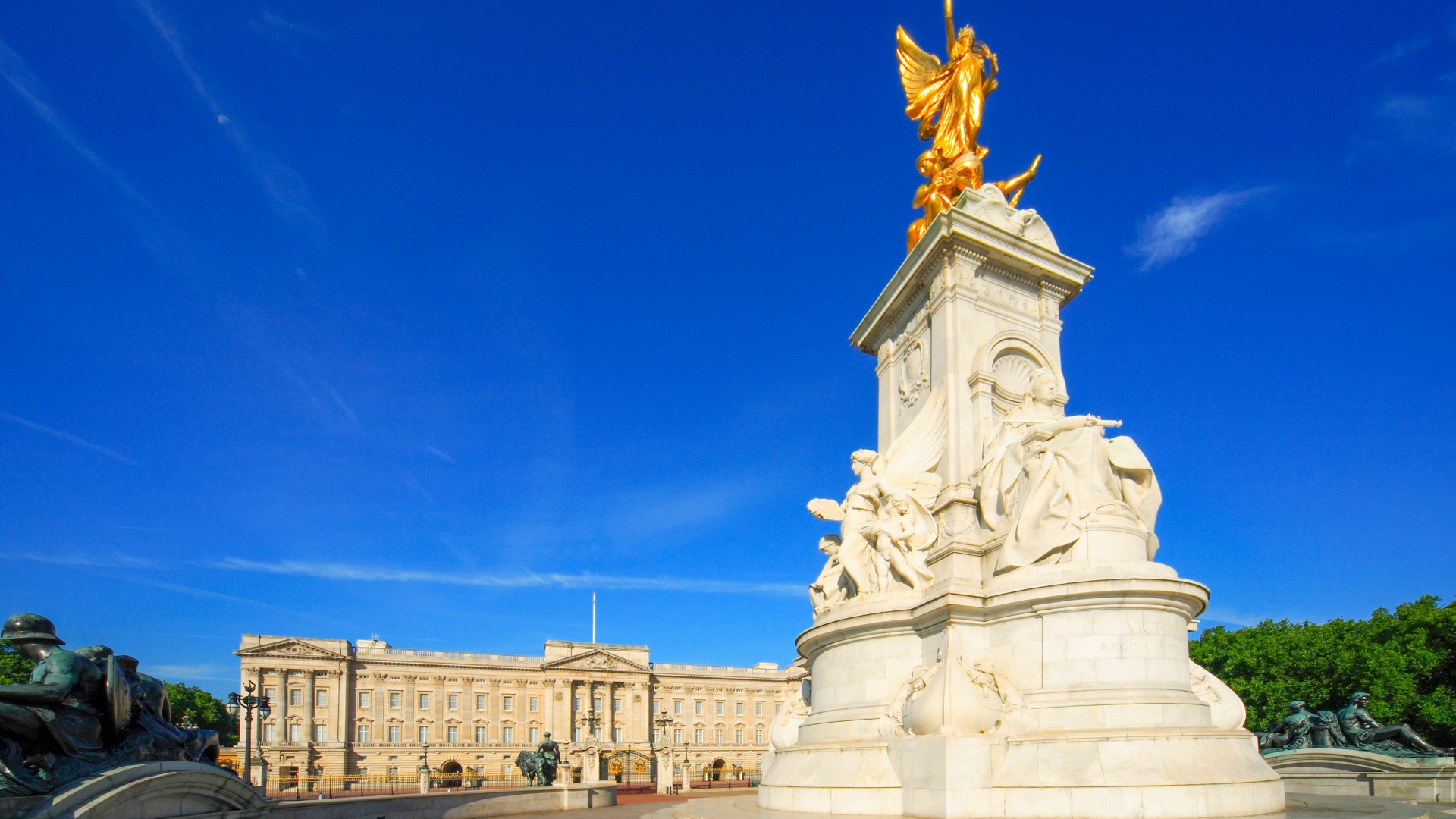
If you were ever curious about the prominent gold statue that's often seen during events at Buckingham Palace - including Trooping the Colour or the celebrations after the Coronation - it's a monument to Queen Victoria.
Queen Victoria was, up until her great-great-granddaughter beat it with the historic Platinum Jubilee in 2022, Britain's longest-reigning monarch - and the one who made Buckingham Palace 'home.' Victoria reigned for 63 years and seven months.
Buckingham Palace wasn't royal by origin
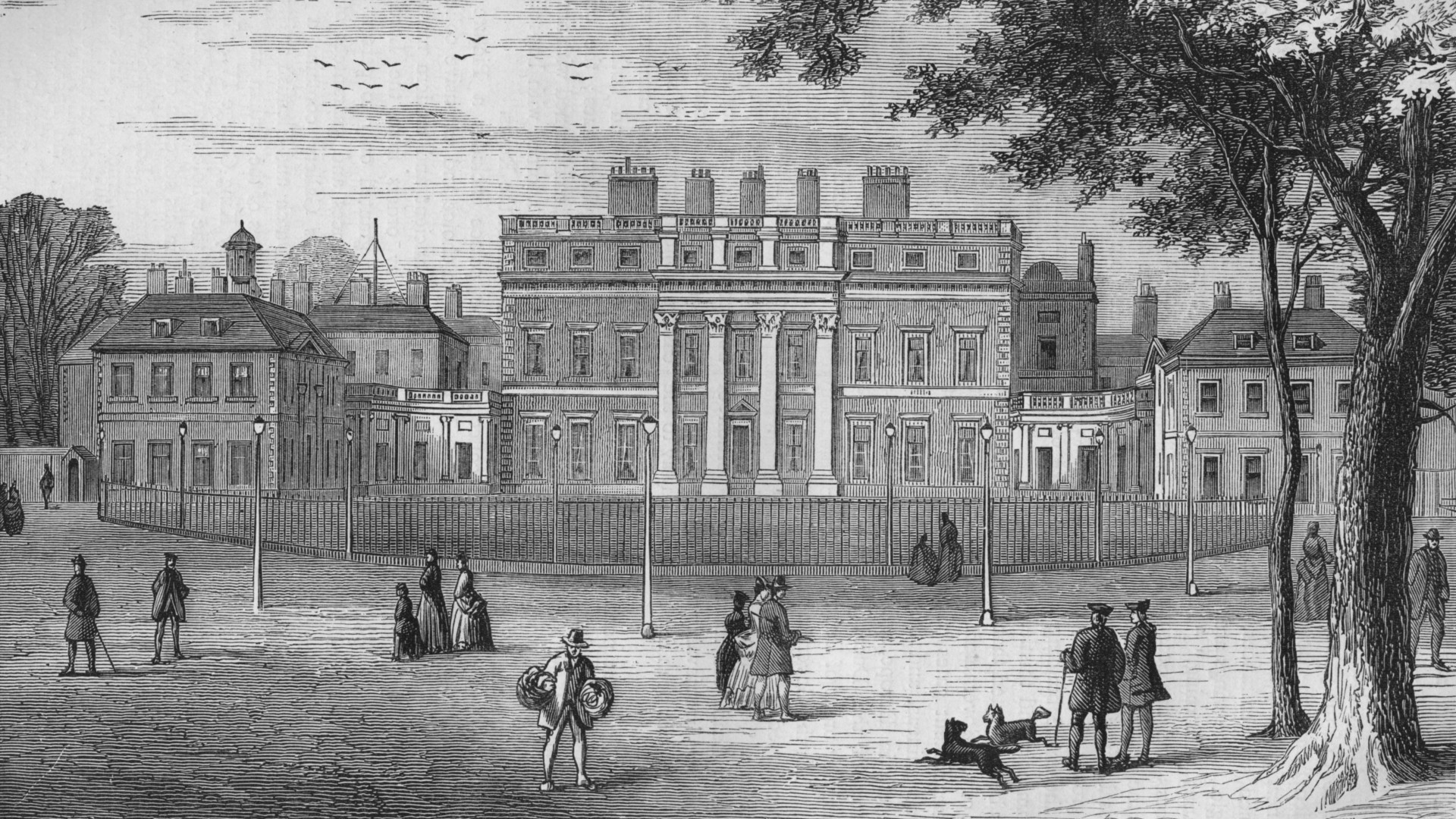
Despite being synonymous with the likes of the late Queen Elizabeth II and King Charles, Buckingham Palace wasn't always a royal residence or historic palace. It started out as a not-so-humble home for a Tory politician.
The main part of the palace people see today was built by John Sheffield in 1703. John was the 3rd Earl of Mulgrave and Marquess of Normanby, and later in the same year, he was made the Duke of Buckingham.
What we now know as Buckingham Palace was officially called Buckingham House. George III bought Buckingham House in 1761 for his wife Queen Charlotte, and that's how it came to be one of the royal palaces.
Buckingham Palace is certainly not short of rooms
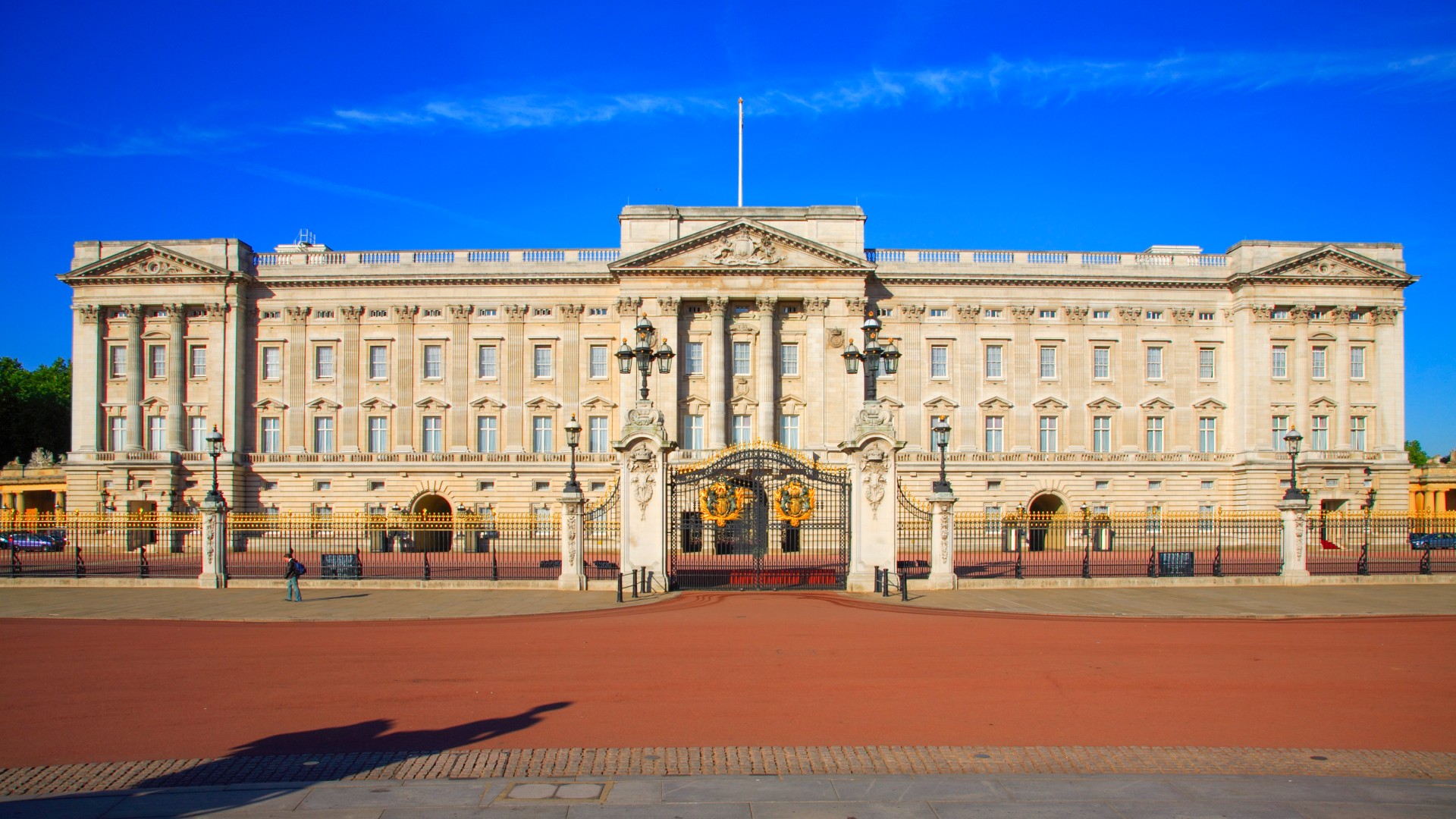
Welcoming dignitaries from all around the world, it's no surprise that Buckingham Palace boasts an incredible number of rooms - 775, to be precise.
As well as 775 rooms, there are 78 bathrooms.
Of the impressive number of rooms, these are made up of 188 staff bedrooms, 92 offices, 78 bathrooms, 52 royal and guest bedrooms, and 19 State Rooms.
There's a shocking amount of windows
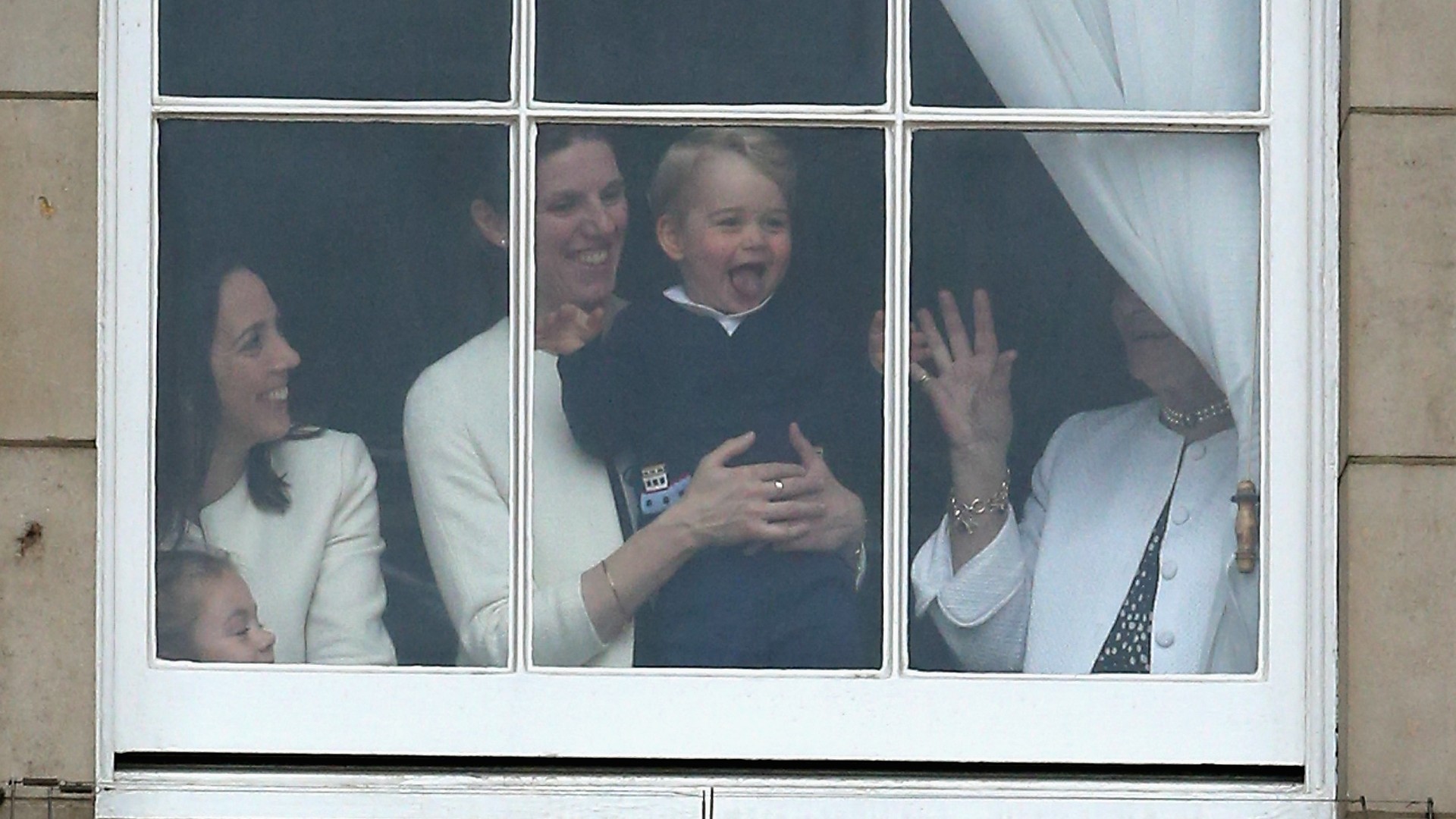
You wouldn't want to accidentally leave one of the windows at Buckingham Palace open and be responsible for finding the draught - there are reportedly 760 windows at the iconic royal residence. We can't imagine how long it takes to clean them all...
The light bill must certainly be something
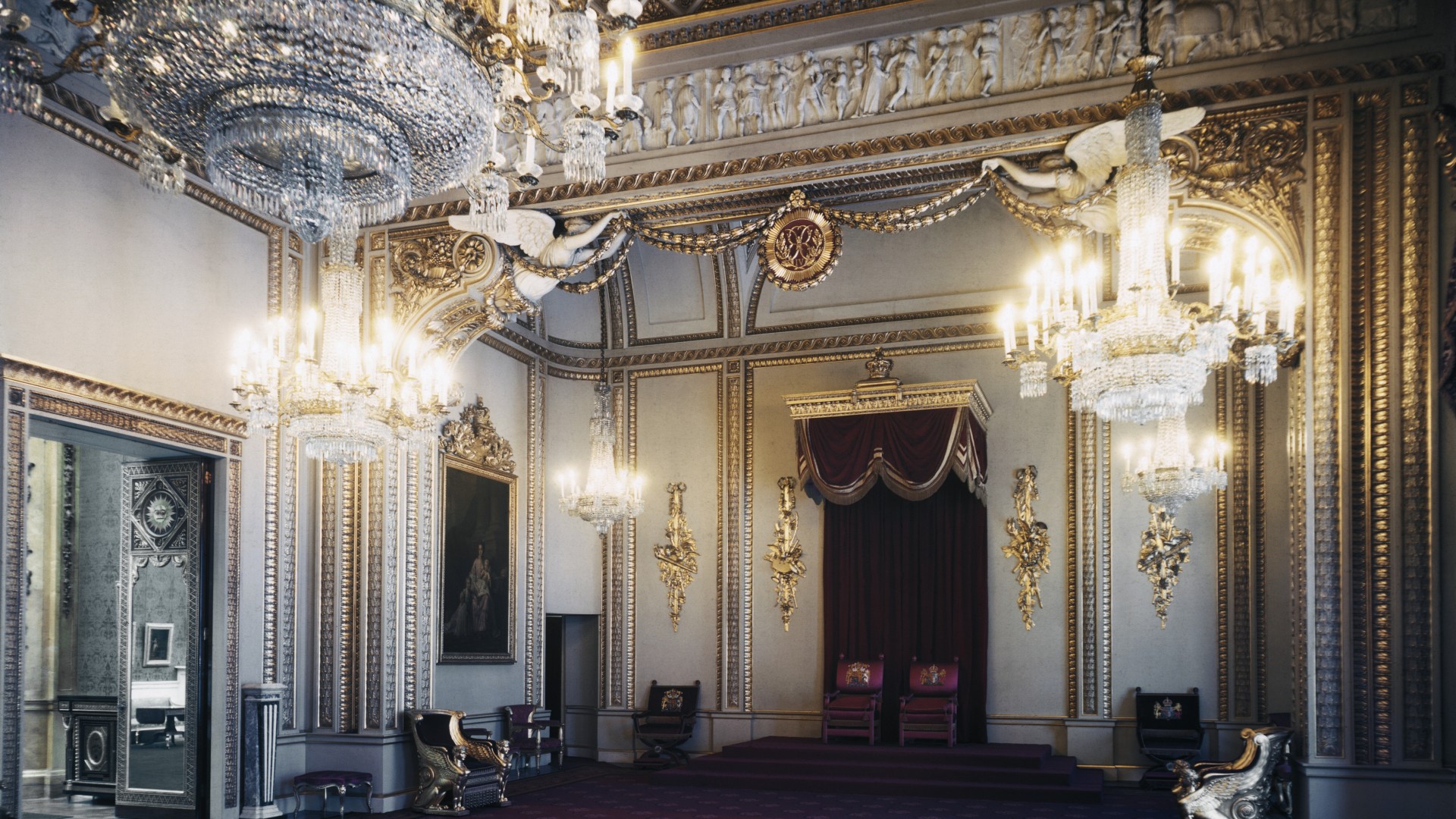
Considering the sheer volume of rooms in the palace, it's no surprise that there's also a huge number of lightbulbs needed. It's estimated that there are over 40,000 lightbulbs used throughout Buckingham Palace - per My London and others.
The Express reported that the late Queen Elizabeth still managed to keep some prudent cost savings in place - banning bulbs with power over 40 watts and insisting lights be switched off in rooms not being used.
Fun fact: the first room in the palace to light up with electric bulbs was the ballroom, having electricity introduced in 1883.
The biggest room is a spectacular ballroom
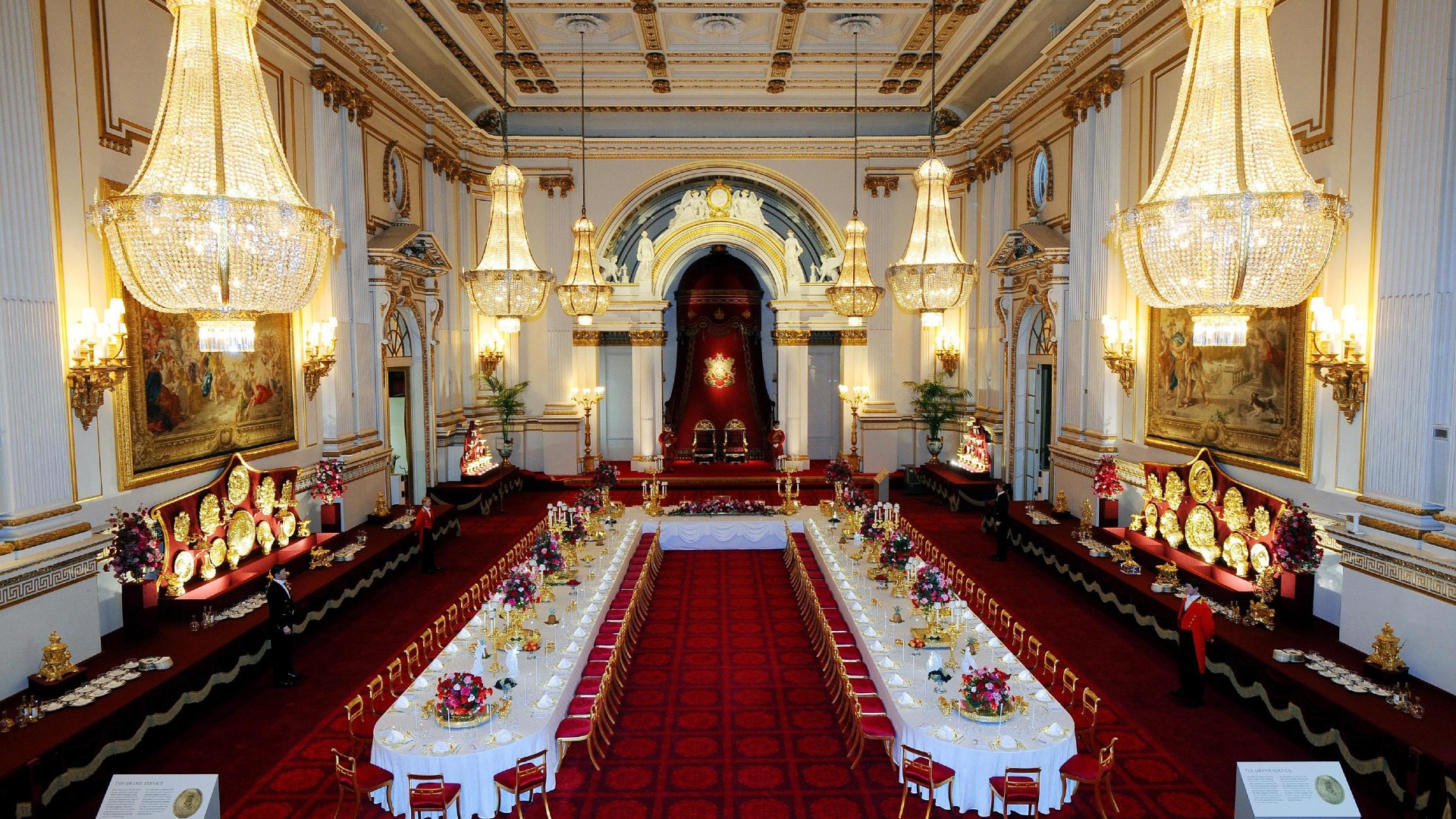
There are, unsurprisingly, plenty of tremendous rooms housed within Buckingham Palace, but by all accounts, none compare to the majesty of the Ballroom.
Measuring 36.6 metres long, 18 metres wide, and 13.5 metres high, it is the largest room in the palace and welcomes the biggest names from around the world.
State Banquets are usually held here, with the likes of Presidents Obama and Trump famously getting the full royal treatment when visiting.
The first celebration ever to be held in the ballroom was to mark the end of the Crimean War.
The gardens are record-breaking
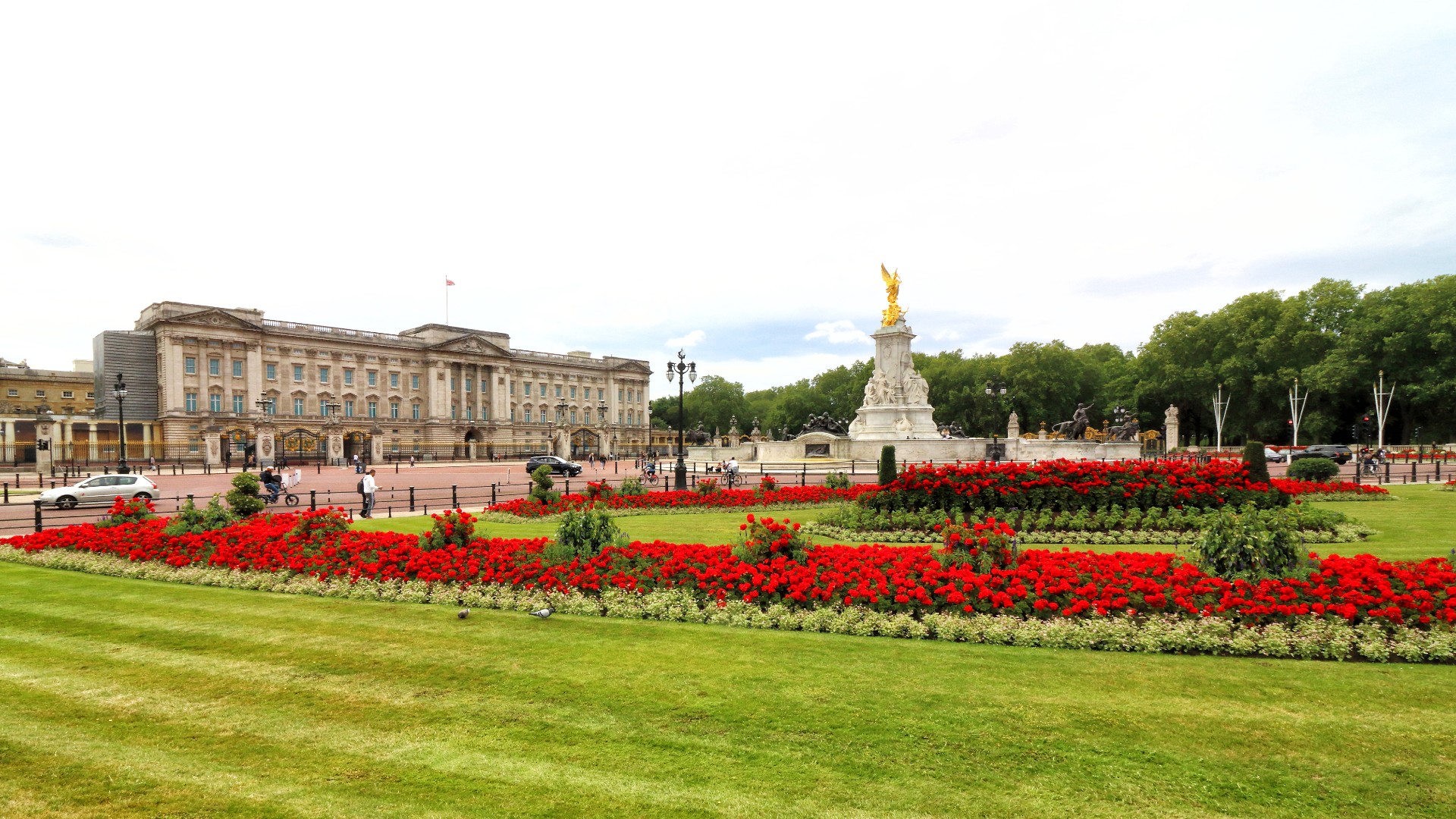
Buckingham Palace boasts a 39-acre garden. Not only is this roughly the size of TWENTY football pitches, but it is officially London's largest private garden.
The grounds reportedly include 325 wild plant species, 30 species of breeding birds, and over 1,000 trees, including 98 plane trees and 85 different species of oak.
Even more interestingly, the garden has its gin. Launched in 2020, Buckingham Palace Gin uses lemon, verbena, hawthorn berries and mulberry leaves alongside 12 hand-picked botanicals straight from the gardens.
The iconic balcony tradition is all down to Queen Victoria
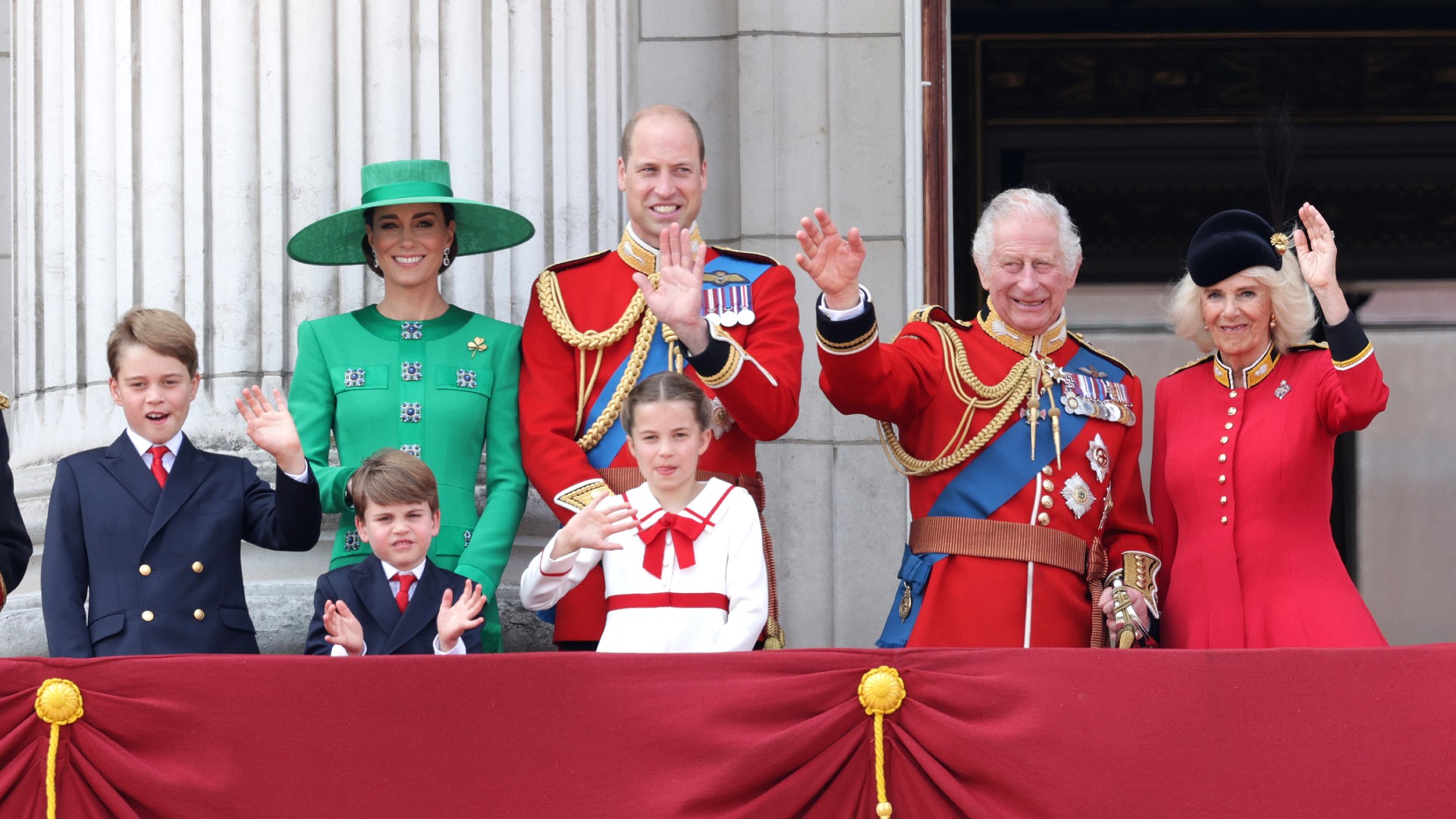
Queen Victoria made the first ever public appearance on the balcony of Buckingham Palace in 1851 - and started what might just be one of the most beloved royal traditions that endures to this date.
There have been so many memorable balcony photos over the years - from Prince William and Kate Middleton's wedding kiss to King Charles and Queen Camilla's Coronation - and it all dates back to the opening celebrations of the Great Exhibition, the first in a series of World Fairs spotlighting the culture and industry of the time.
Queen Victoria and her family used the balcony to create a closer bond with her subjects, soaking up the jubilant atmosphere.
There's no excuse for being late
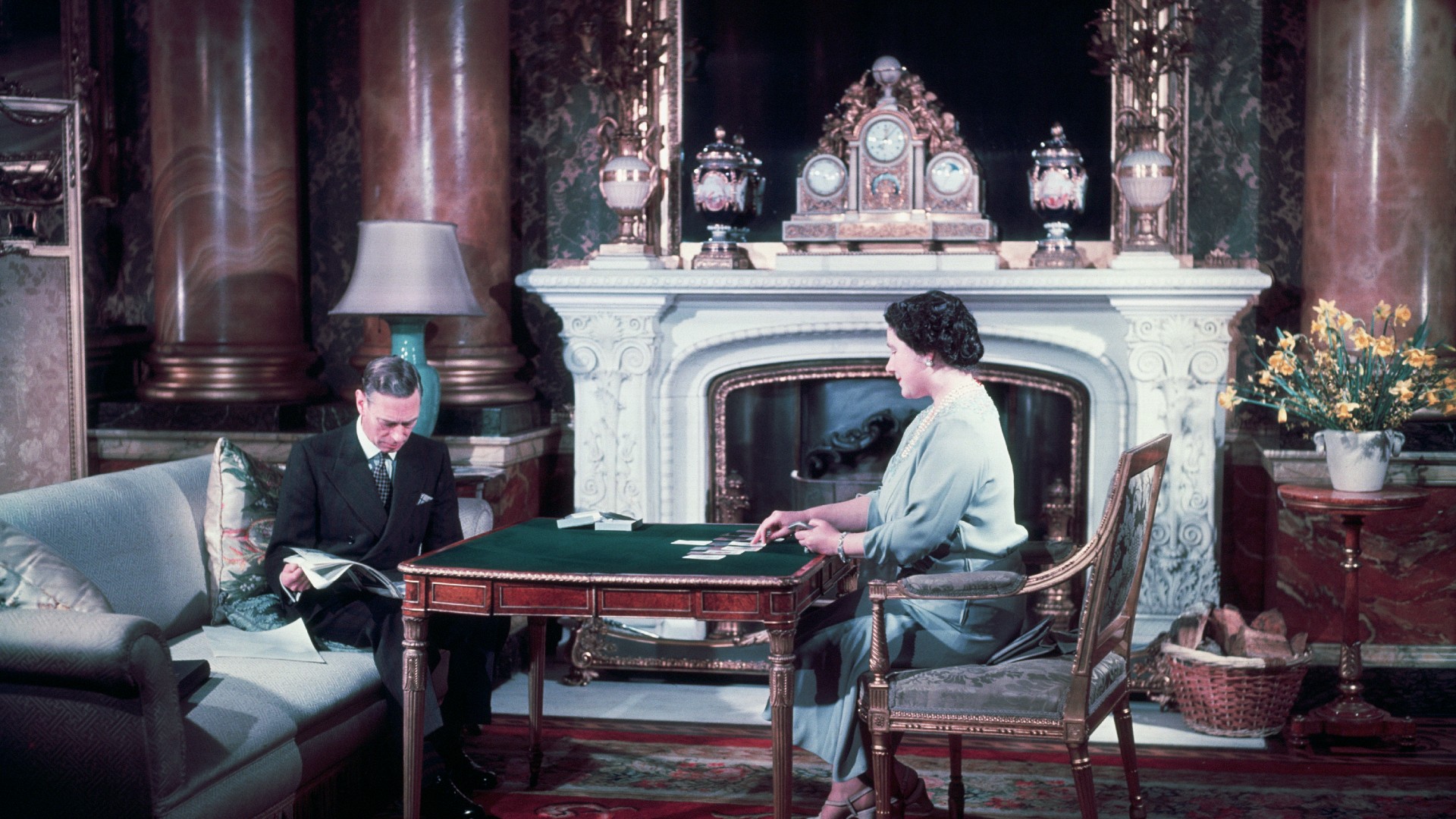
If you were ever fortunate enough to be invited to Buckingham Palace, chances are you wouldn't risk being late anyway. But once you're in the palace, tardiness is most definitely unforgivable as The Telegraph reports that the palace reportedly has over 1,000 clocks on site.
The huge collection of clocks require as many as three different people to maintain them, ensuring they're all properly set and wound.
Daylight savings time must be a tough day for them.
The late Queen welcomed two of her children there
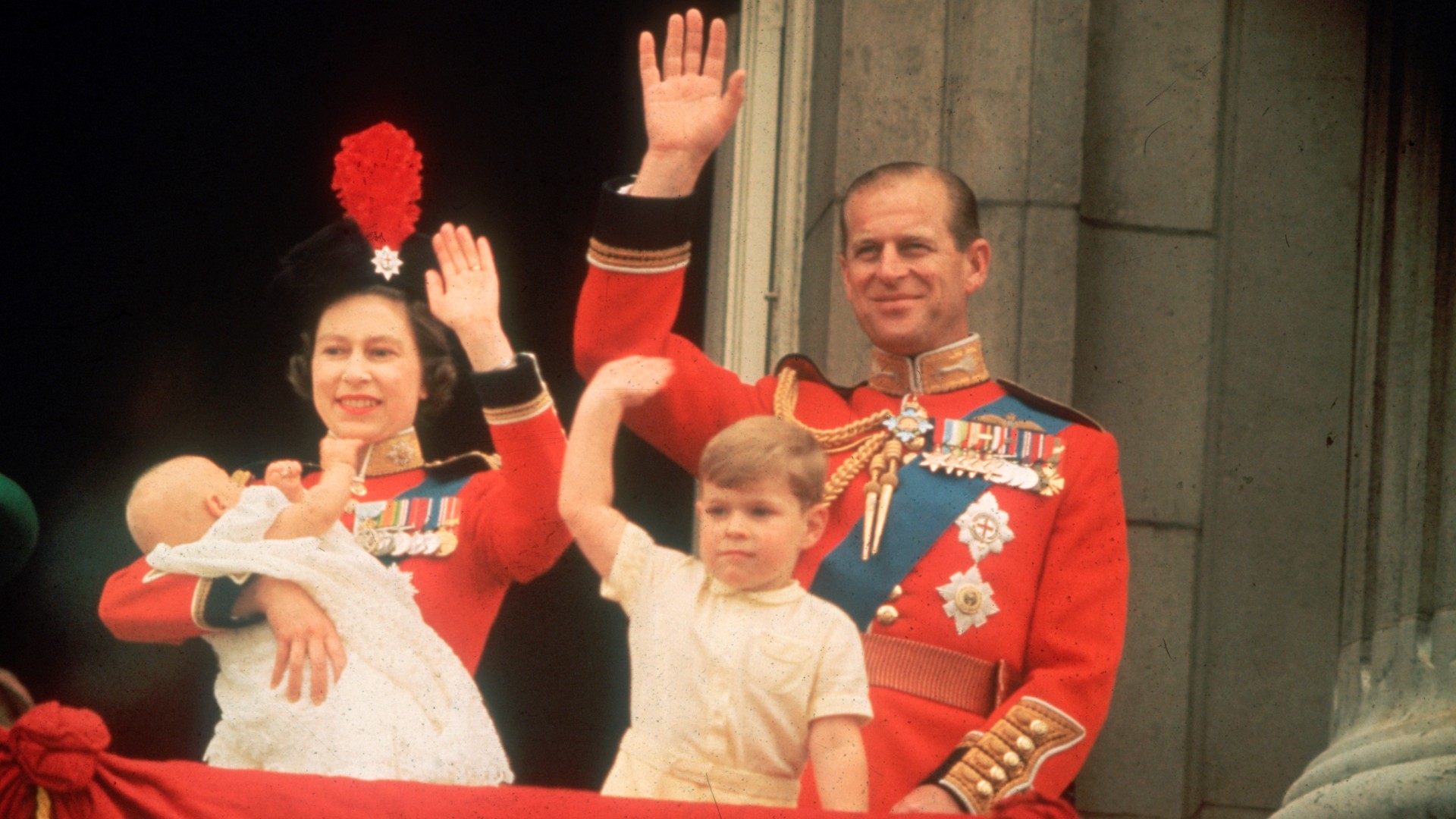
Buckingham Palace brings hordes of visitors each year, with fans from across the world inspired to visit a building so closely attached to royals like the late Queen Elizabeth and King Charles.
While the royals famously live there, and are seen waving from the balcony during iconic moments, for some, there's an even greater connection.
The late Queen actually gave birth to the now King Charles and Prince Andrew at the palace.
To this day, royal births and deaths are announced via a placard attached to the front railings for members of the public to read.
Christenings for future monarchs took place there
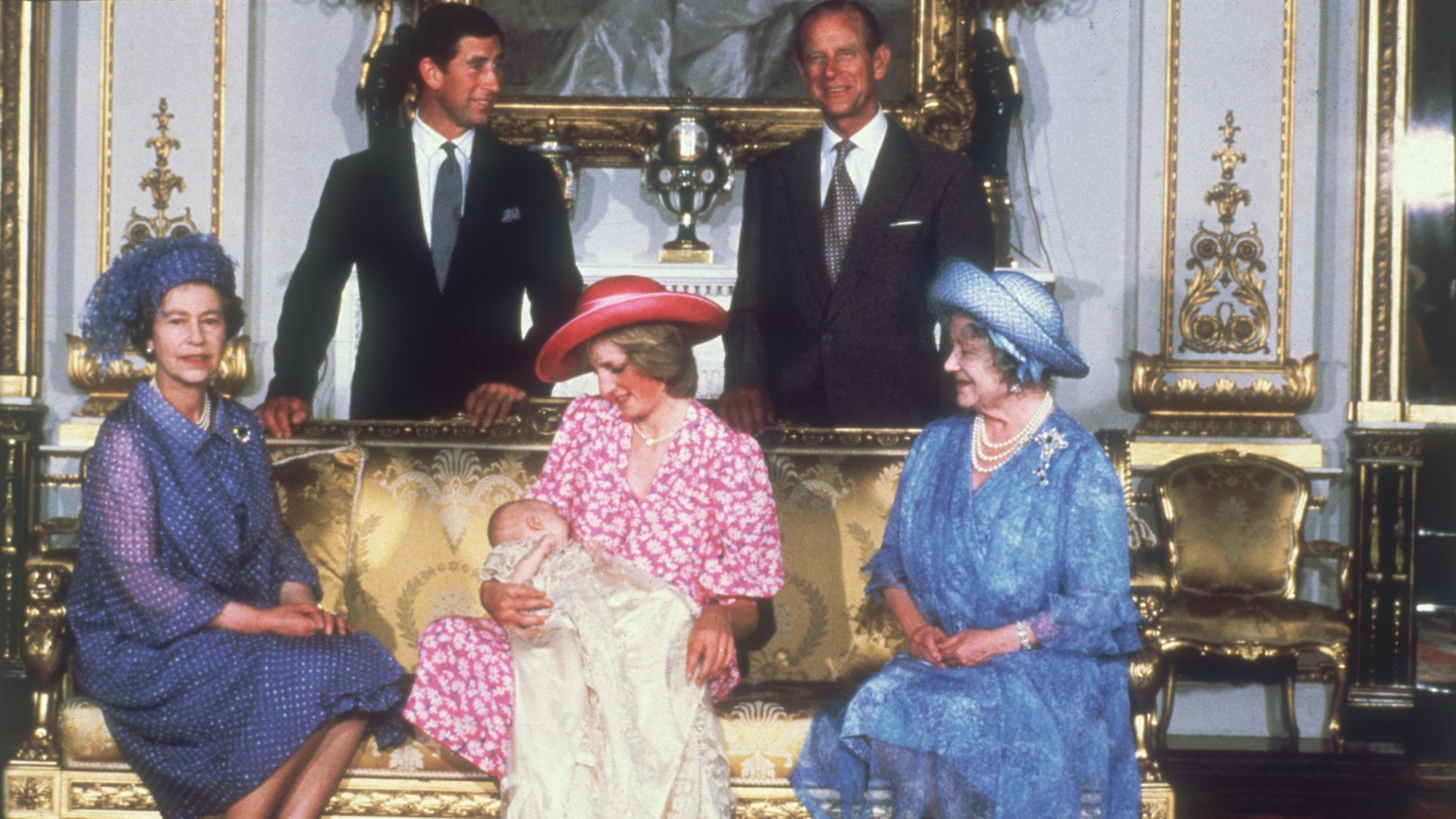
St James's Palace is a short distance away from Buckingham Palace, and is where many christenings have taken place in more recent years. However, historically, the christenings of senior royals have taken place in the Music Room at the palace.
King Charles, Princess Anne, Prince Andrew and Prince William all took place in the Music Room.
Running the palace is a huge operation
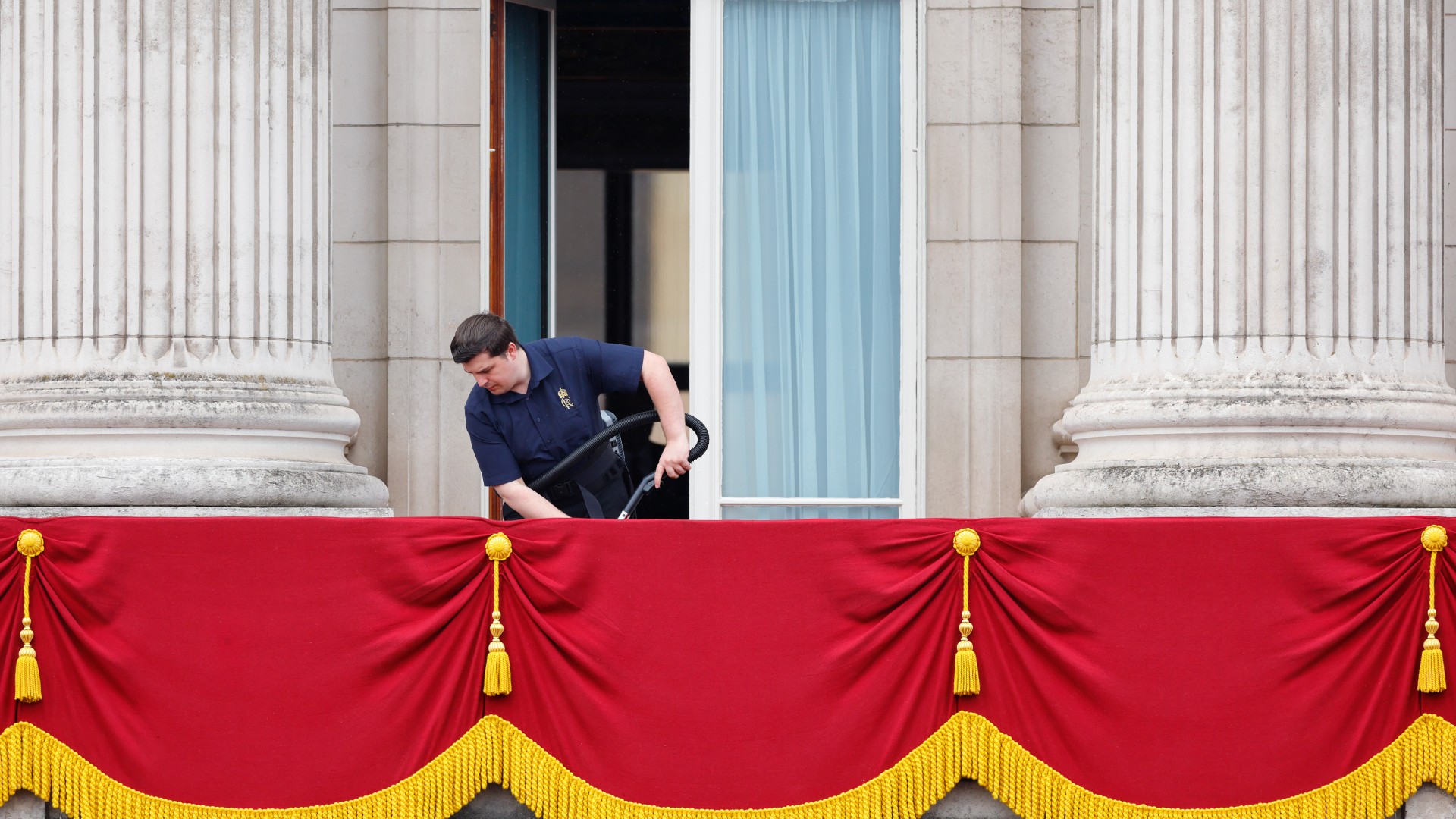
Buckingham Palace is the official home to the most senior royals and welcomes world leaders from all corners of the globe. So to keep everything running as smoothly as it should, there's a huge operation requiring a massive staff.
It's widely reported that over 800 people are employed by Buckingham Palace.
It's not all hard work - per Town & Country, employee benefits include special film screenings at the Buckingham Palace cinema, which sometimes take place even before the movies hit the big screen.
Over 50,000 people are welcomed each year
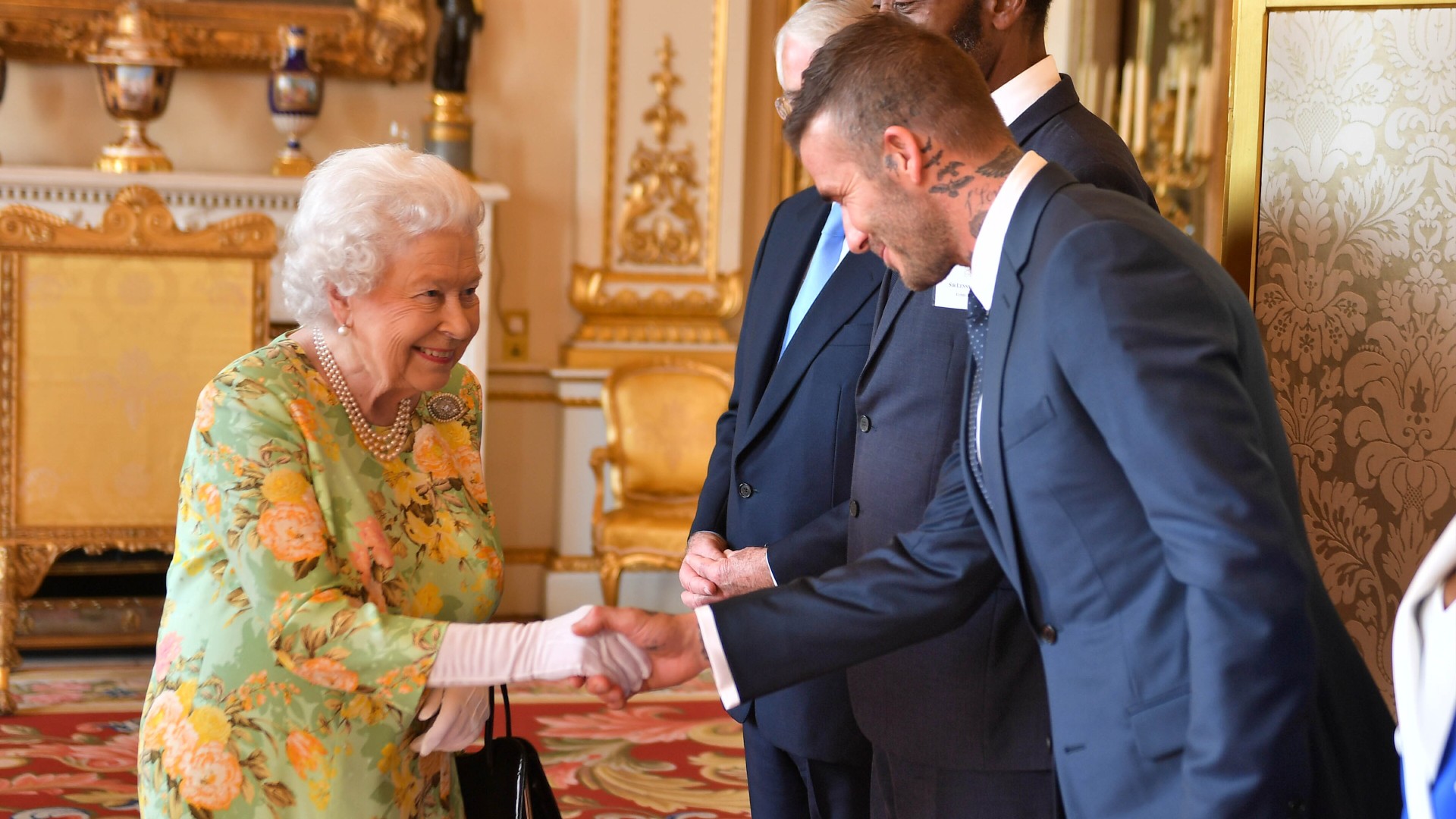
Per the Royal's official website, there are an estimated 50,000 people welcomed to the Palace throughout the year.
Royals welcome guests at the likes of important State Banquets, lunches, dinners, grand receptions and Garden Parties (where, it's often said, the late Queen would serve 27,000 cups of tea per year!).
His Majesty King Charles also hosts a weekly audience with the Prime Minister and receives newly-appointed foreign Ambassadors at Buckingham Palace.
It's basically its own mini town
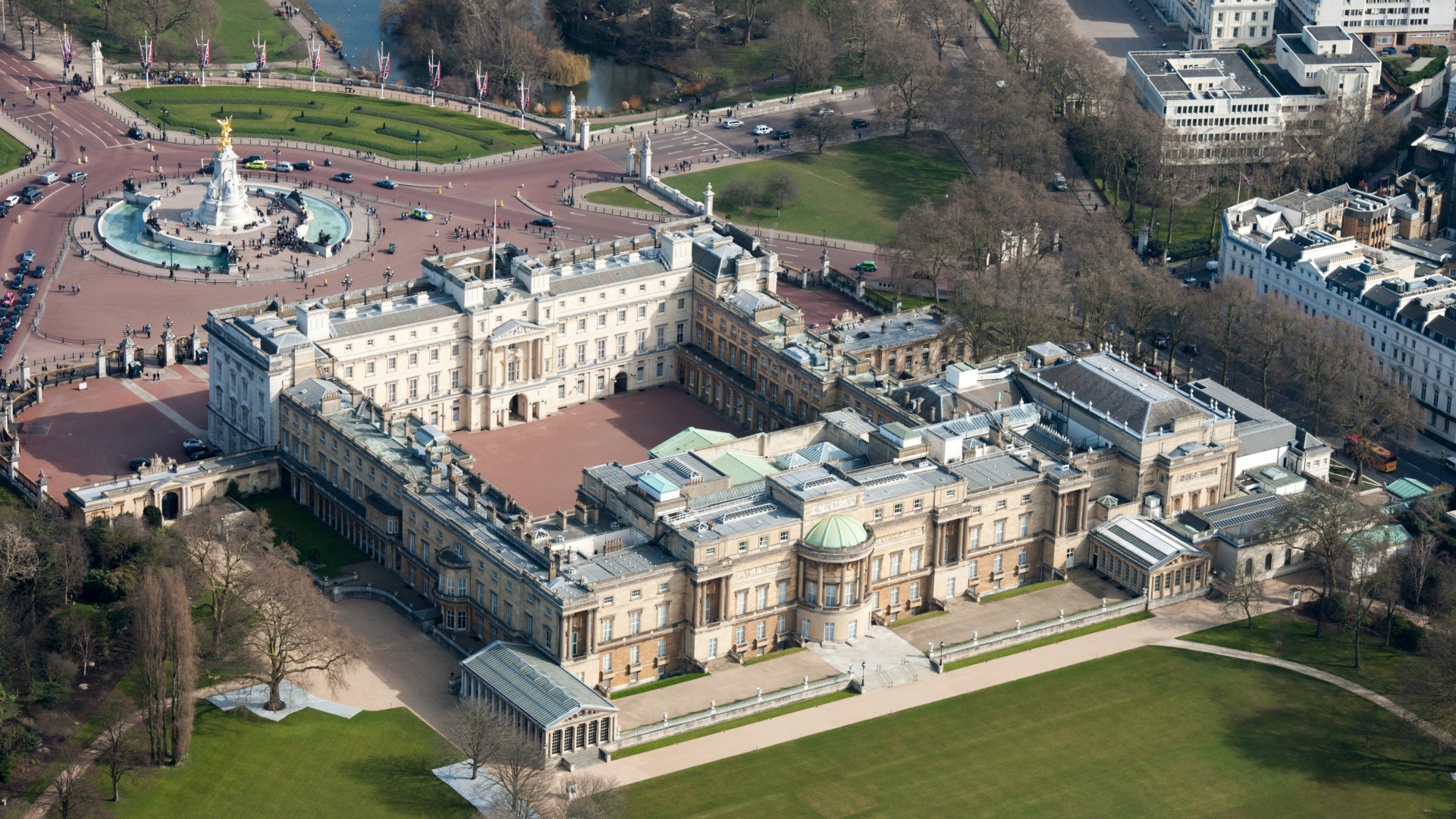
London can be busy, loud, crowded - so it's no surprise the royals have made the most of their iconic space.
The residents and staff have pretty much everything one needs without ever having to leave the grounds.
There's a doctor's surgery, post office and private police station, plus swimming pools, cinemas and so much more.
Someone was caught living beneath the palace
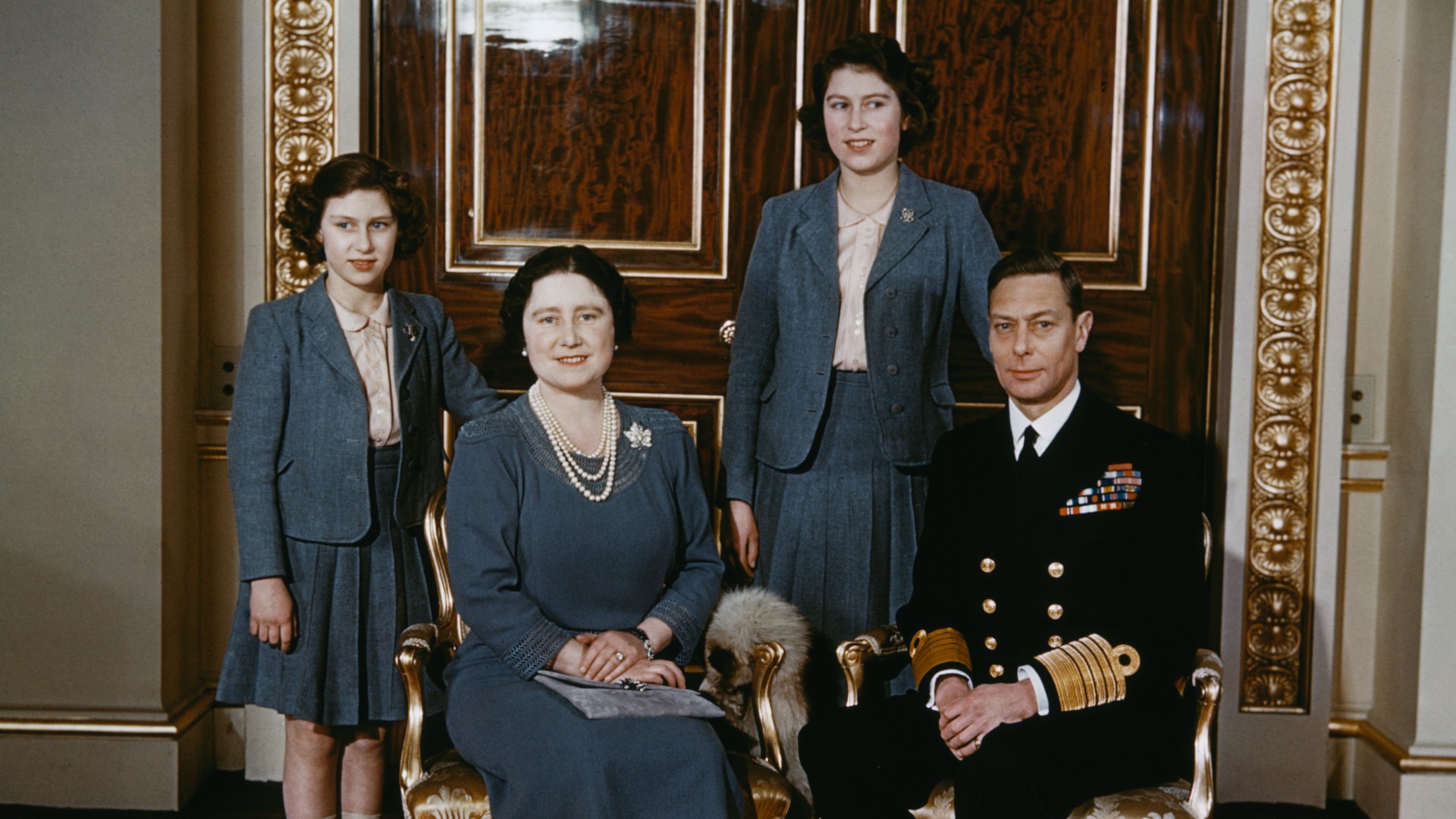
One would expect something as iconic and important as Buckingham Palace to be impenetrable... but that wasn't quite the case.
There's a rumoured connection of tunnels beneath the palace, and a widely quoted story seems to all but confirm it.
Per the Telegraph, King George VI and Queen Elizabeth (the Queen Mother) actually encountered someone who had been living in the tunnels. While they were (understandably) shocked to discover a man living beneath their palace, the reports describe the royals as calling the man "very courteous."
Only a few special residents had unrestricted access
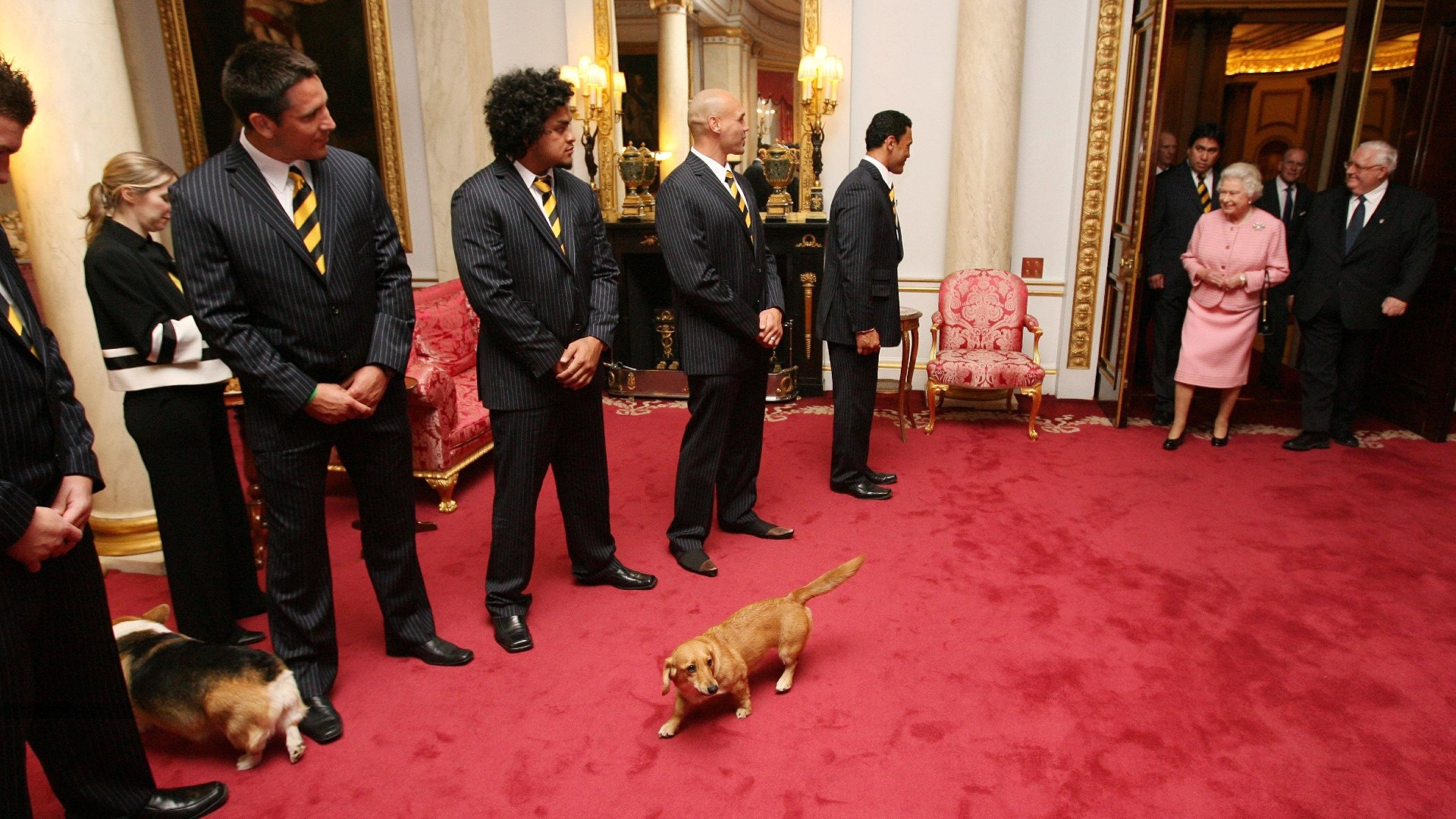
The late Queen Elizabeth was famous for her lifelong love for Corgis - owning over 30 throughout her life.
Such was her love for the pups, they were said to have free reign around the Palace, having unrestricted access.
Princess Diana is said to have coined the phrase "a moving carpet" to describe the jumble of dogs that always preceded Her Majesty, unaware of the royal protocol that one shouldn't walk in front of the monarch.
Royal author Penny Junor wrote in her book, All The Queen's Corgis, that they even had a "special corgi room where they have raised wicker baskets lined with cushions to keep draughts away."
Buckingham Palace has been bombed nearly ten times
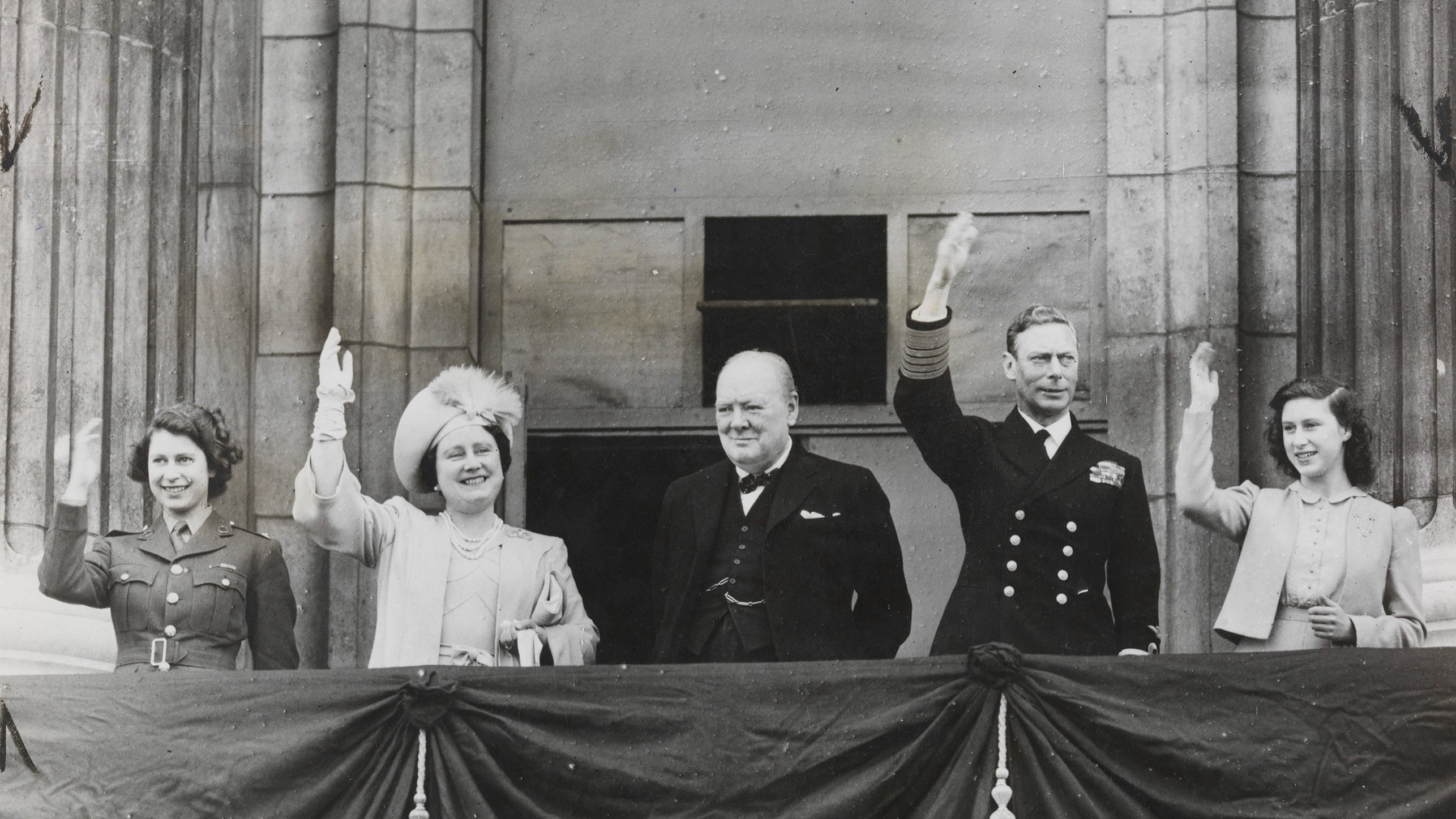
During World War II, Buckingham Palace was a target for the enemy forces - and they managed to hit the palace with nine direct bombs.
The Royal Chapel, inner quadrangle, Palace gates, and the Victoria Memorial were all hit, and four members of staff were injured, with one fatality.
Despite this constant threat, the royals won the love of the public by refusing to leave - King George VI and Queen Elizabeth were against abandoning London during their time of need, choosing to stay and have Princesses Elizabeth and Margaret be seen on the streets to boost morale.
When the war was over on May 8, 1945, Winston Churchill joined the royals on the balcony of Buckingham Palace for an iconic moment of history.
It's rumoured that lucky residents can move around London discretely
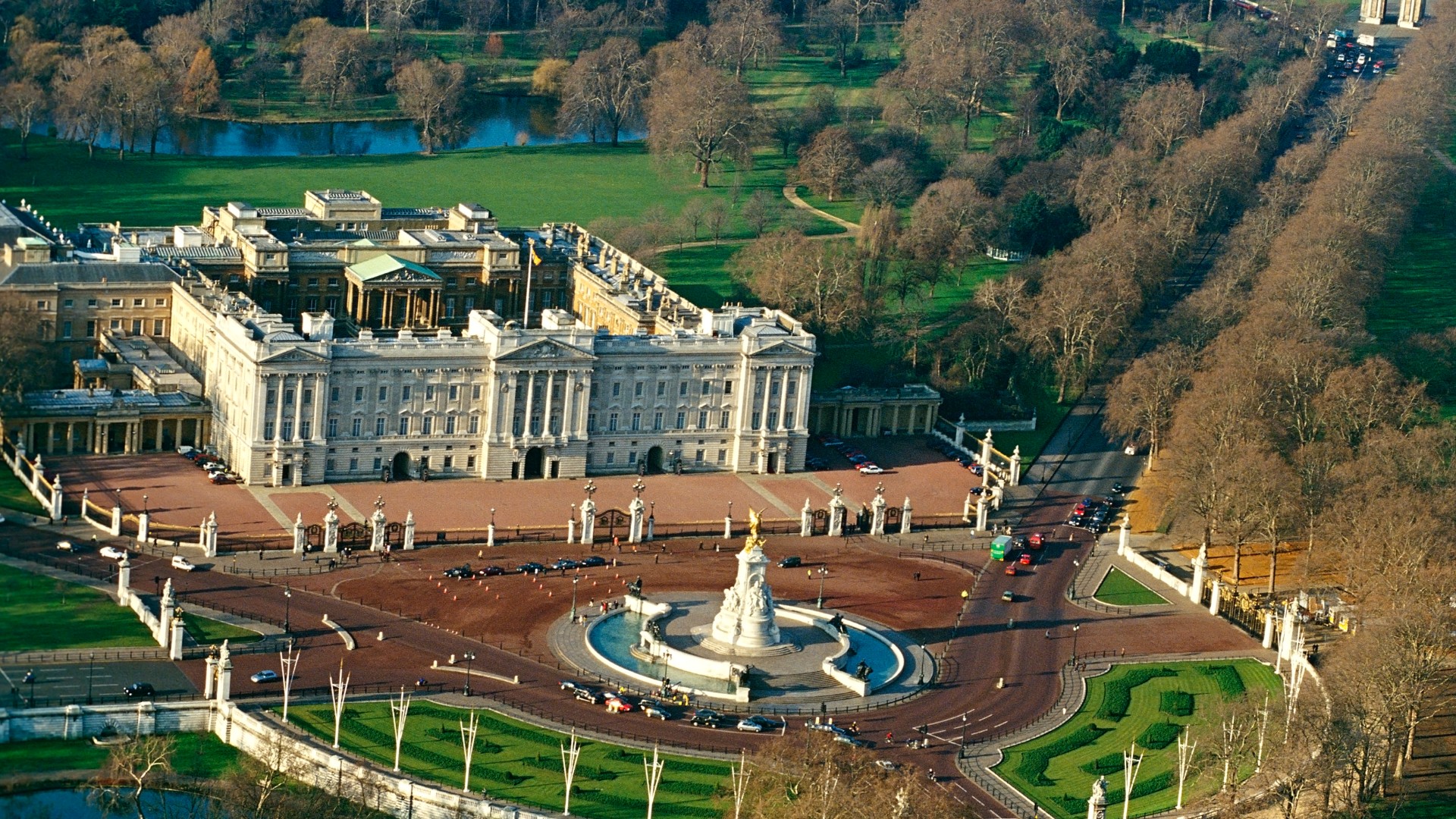
With the royals holding such important powers, it's not out of the realm of possibility that they can get around the city with ease through a series of alleged secret underground tunnels.
Some theories have suggested these tunnels connect the Palace to the Houses of Parliament and Clarence House, while others - including Princess Beatrice's husband, Jack Brooksbank - have all but confirmed they exist, and even connect to some upscale bars.
Per the Daily Mail, Jack reportedly let slip that there was a tunnel from St James's Palace - where he lived with Princess Beatrice for a whole - to the swanky bar on Little St James’s Street.
"I haven’t used it yet, but I’d love to check it out," said James.
None of this is confirmed, however - and we're sceptical that, if they do exist, they'd lead to a bar...
There's a private helipad, which the Wales's used for a stylish start to the honeymoon
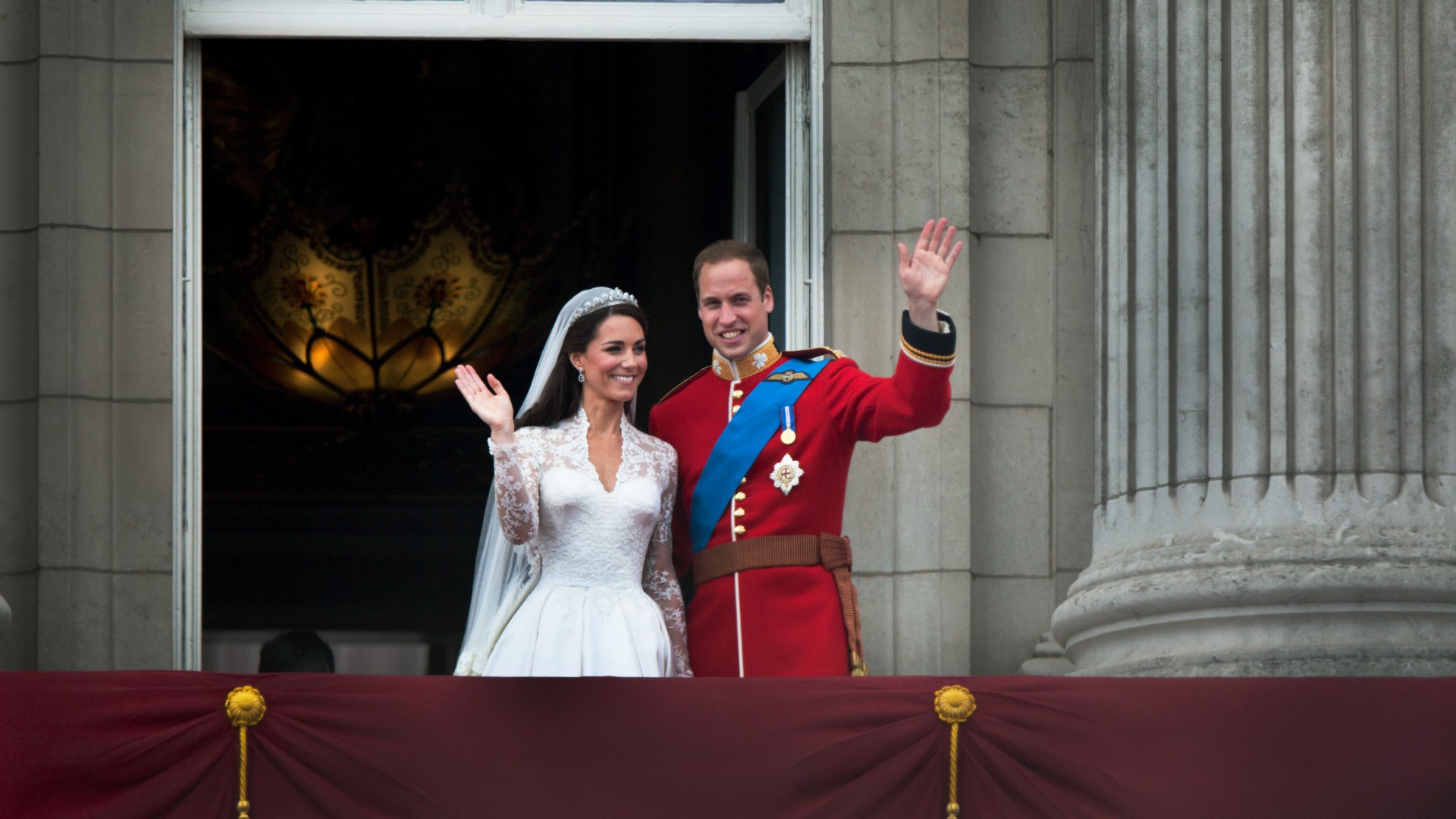
Arriving (and leaving) in style is part and parcel of being royal, so the helipad on the grounds of Buckingham Palace no doubt comes in handy.
One famous use of the helipad came in April 2011, when Prince William and Kate Middleton used it to start their honeymoon off.
The couple jetted off for two weeks in the Seychelles the morning after their historic wedding.
Parts of the palace are hundreds of millions of years old
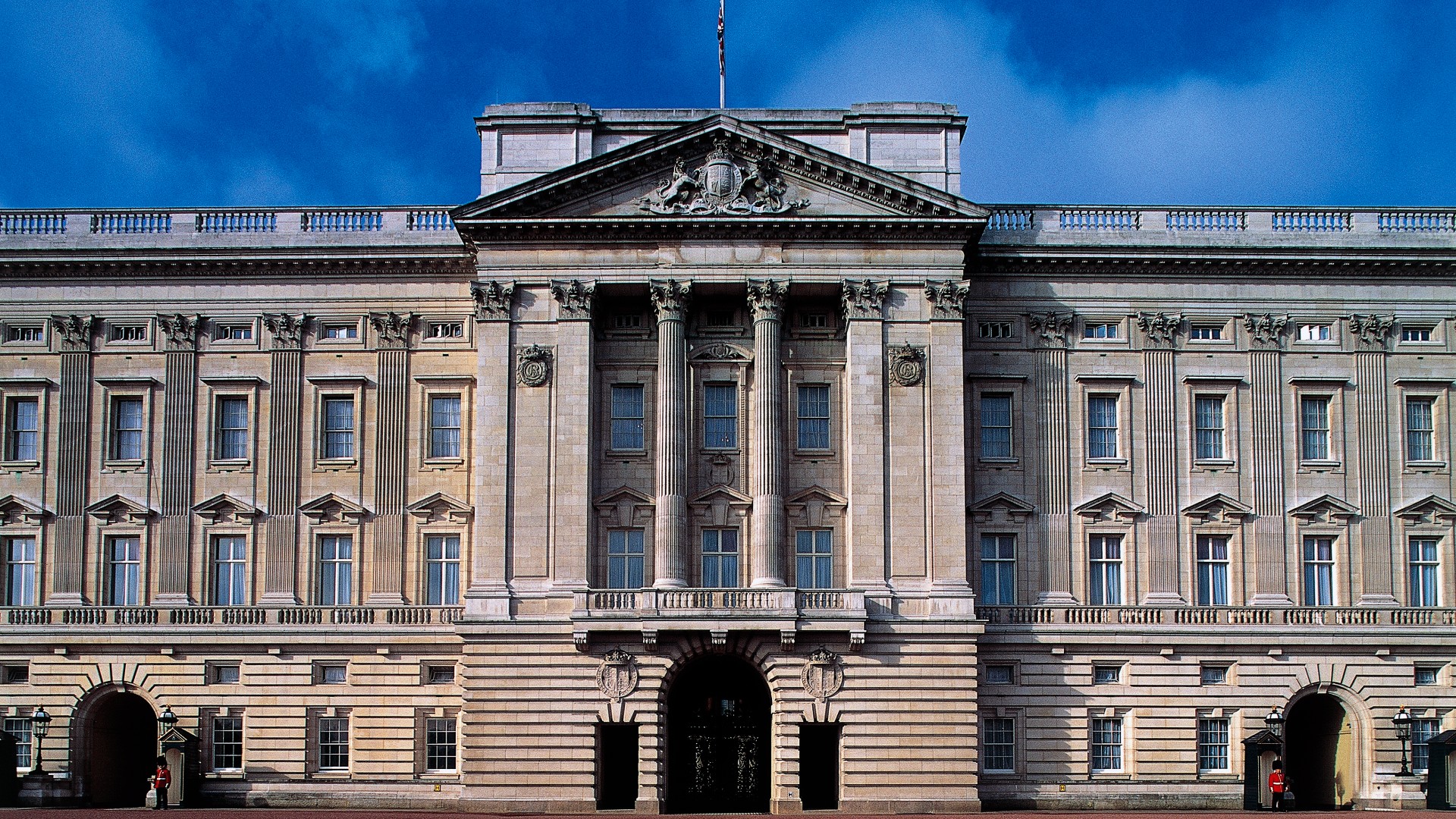
The Royal Family dates back centuries, but you might be surprised to discover the monarchy isn't even close to being the oldest thing associated with Buckingham Palace.
The palace is constructed from something called oolitic limestone, a material that contains 200-million-year-old microbes.
Buckingham Palace isn't the only building thought to use this prehistoric material -it's also found in the Empire State Building and the Pentagon, per Newsweek.
The original site had very different intentions
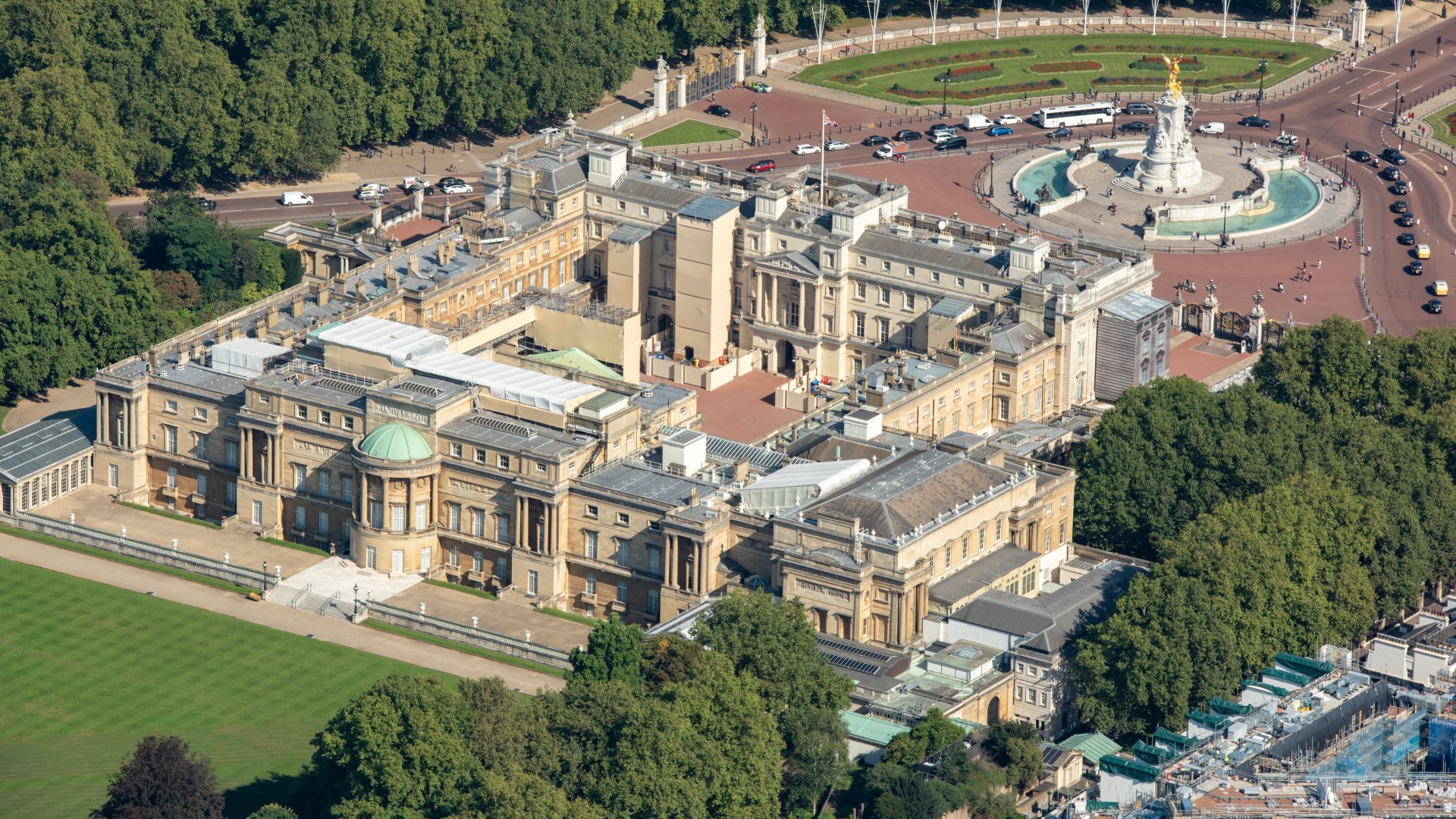
With grounds spanning 39 acres, it's hard to comprehend Buckingham Palace being anything other than the towering monument which symbolises the importance of the British Royal Family.
However, the site where it now stands in Central London was bought with different intentions altogether.
Per Royal Collection Trust, the land was originally a mulberry garden planted by King James I to rear silkworms. Alas, he chose the wrong kind of mulberry bush and silk production never took off in the United Kingdom.
The same man managed to break in... twice
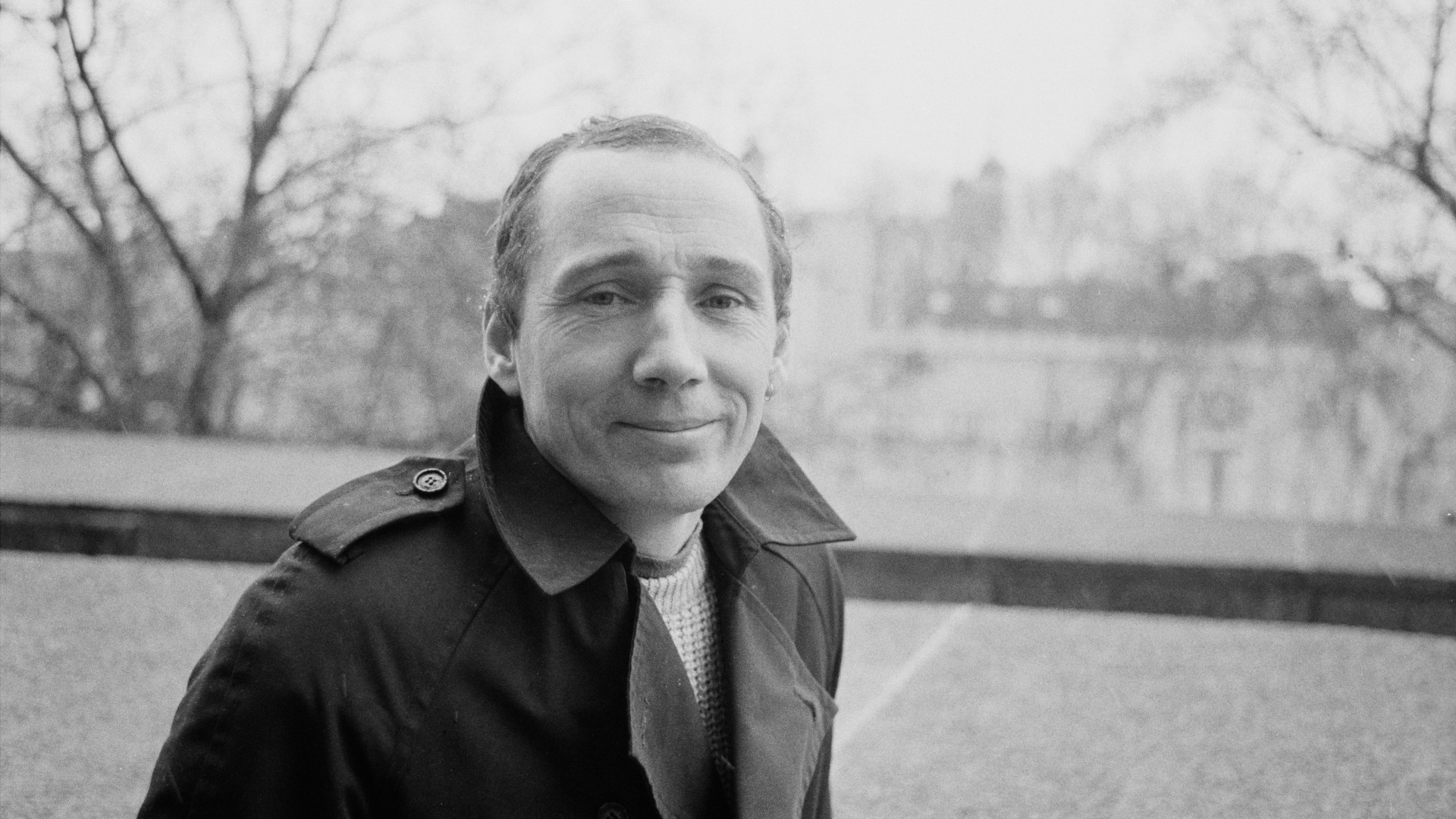
In 1982, Michael Fagan broke into Buckingham Palace. Twice.
While stories have dramatised the event to suggest Her Majesty Queen Elizabeth II spoke with the intruder as he sat on the edge of her bed, he told the Independent in 2012 that she left the room immediately.
During his two breakouts, he claimed to have sat on a throne and drank half a bottle of white wine.
The record for break-ins was a young orphan boy, who got in three times
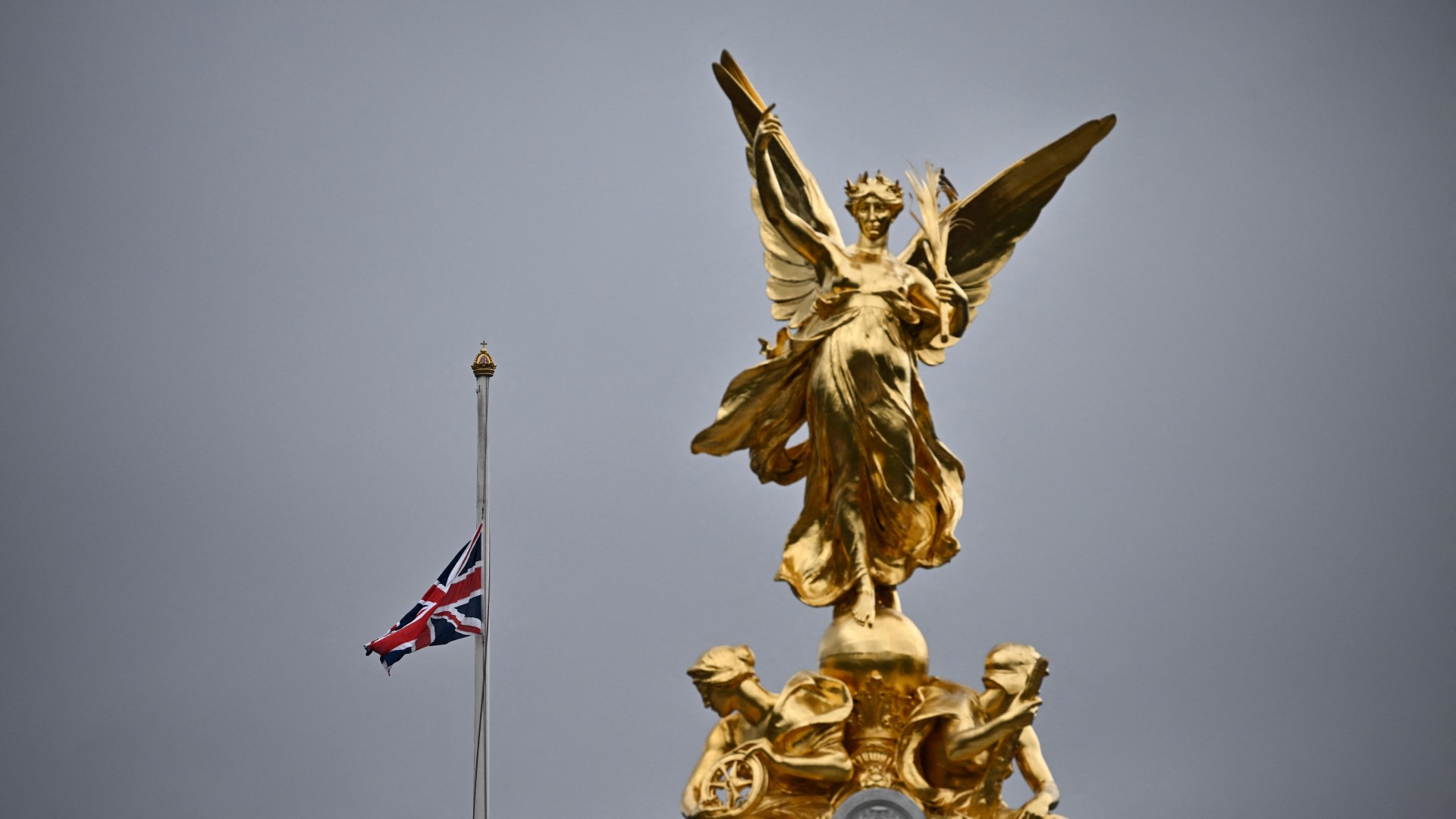
Edward Jones - or The Boy Jones - holds the record for the most break-ins to Buckingham Palace, breaking in at least three times between 1838 and 1841.
He first broke in aged just 14, in December 1838. Two years later, he somehow managed to do it again, this time breaking in just ten days after Queen Victoria had given birth to Princess Victoria.
The Boy Jones was sentenced to three months' hard labour for his crimes - but he wasn't deterred. After being released in March 1841, he was caught once again within the palace grounds, stealing food.
The palace has its own cash machine inside
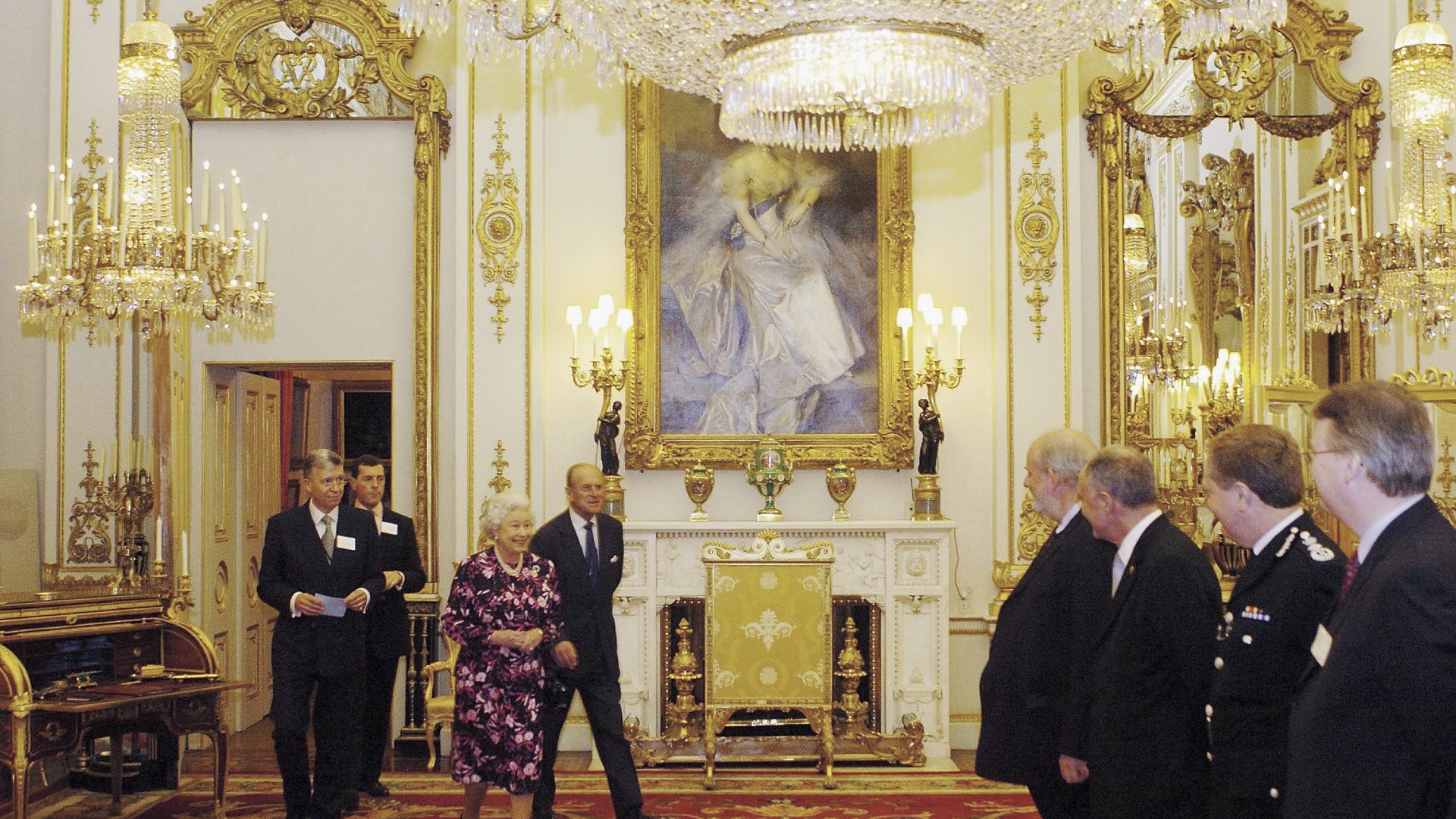
The monarch famously doesn't carry cash - despite being the face on all of the currency.
So it might seem peculiar that they'd even need a personal cash machine in the grounds of the palace, but that's exactly what they have. No doubt more for the staff, it was confirmed to The Standard by the head of Coutts bank in 2001 that there is a private cash machine tucked away in the basement.
One monarch was born and died there
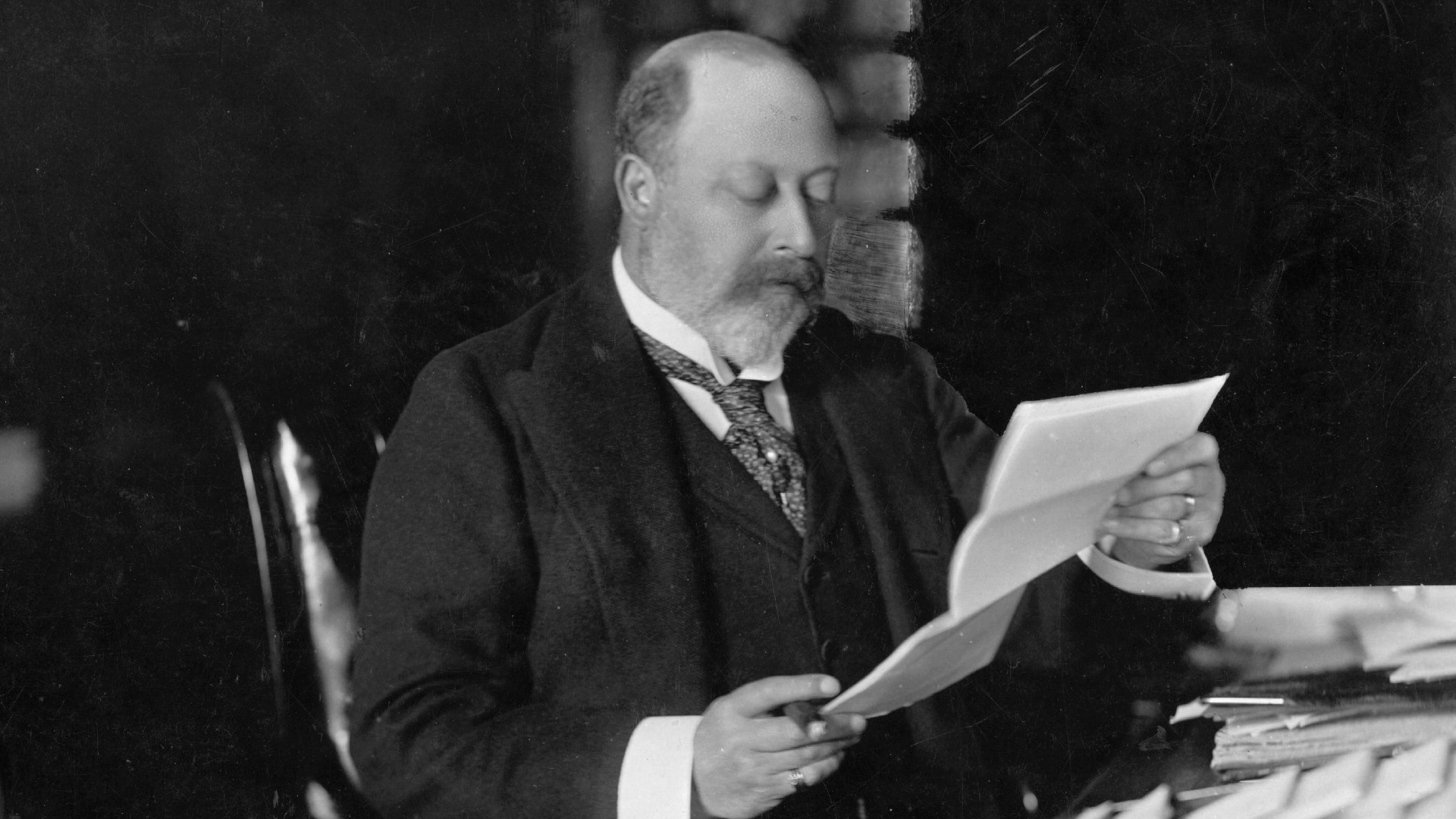
There's only one royal who can stake claim to a somewhat dubious record - being the only member of the royal family to both take their first and last breath within the iconic palace.
Edward VII, the eldest son of Queen Victoria and Prince Albert, was born in the Palace in 1841, four years after his mother made Buckingham Palace the official residence of the monarch.
He died in 1910.
Buckingham Palace’s guards wear red for a specific reason
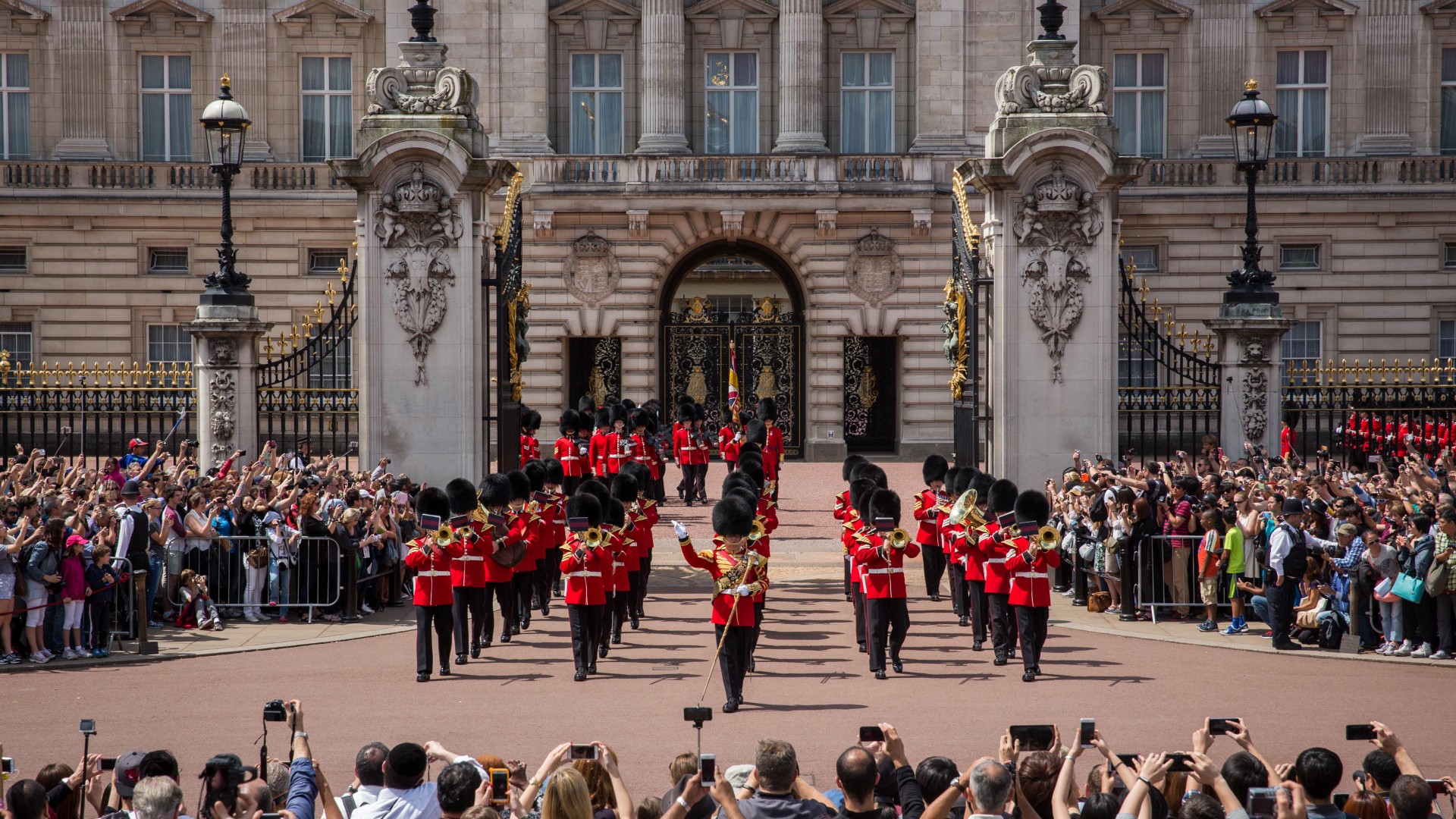
From the iconic balcony shots to the thrill of seeing the Royal Standard flying, there are some things fans love seeing at Buckingham Palace. And one of these things, no doubt, includes the guards.
With their red uniforms and perfect precision, they add an element of tradition and pomp. But the signature red of their uniform has an interesting history.
The first is surprisingly thrifty for the royals - red was one of the cheapest dyes, making them cheaper to mass produce.
The second is more in line with royal and military imagery. Red is said difficult to distinguish from a distance, so having everyone in red would cause any threats to struggle to really work out how many soldiers they were up against.
There’s a stunning amount of art inside the palace
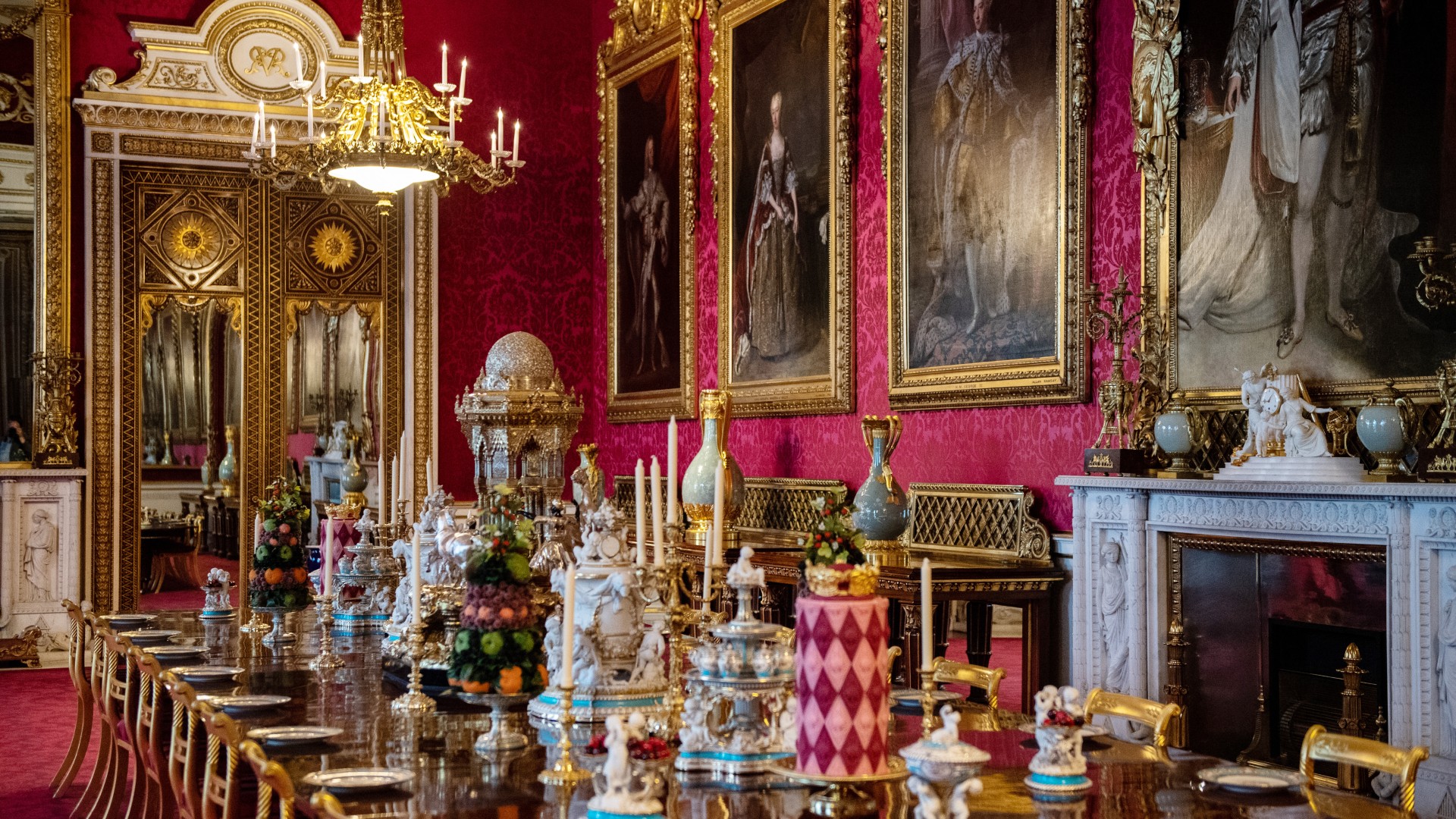
London has plenty of astonishing artworks on display - from the British Museum to the National Portrait Gallery - but some of the finest pieces in history are part of the Royal Collection, with plenty inside Buckingham Palace.
Per the Royal Collection Trust, works include paintings by Flemish Baroque pioneer Peter Paul Rubens, Anthony van Dyck and Italian painter Canaletto, plus rare porcelain vases and other works.
In 2002, Brian May made rock history
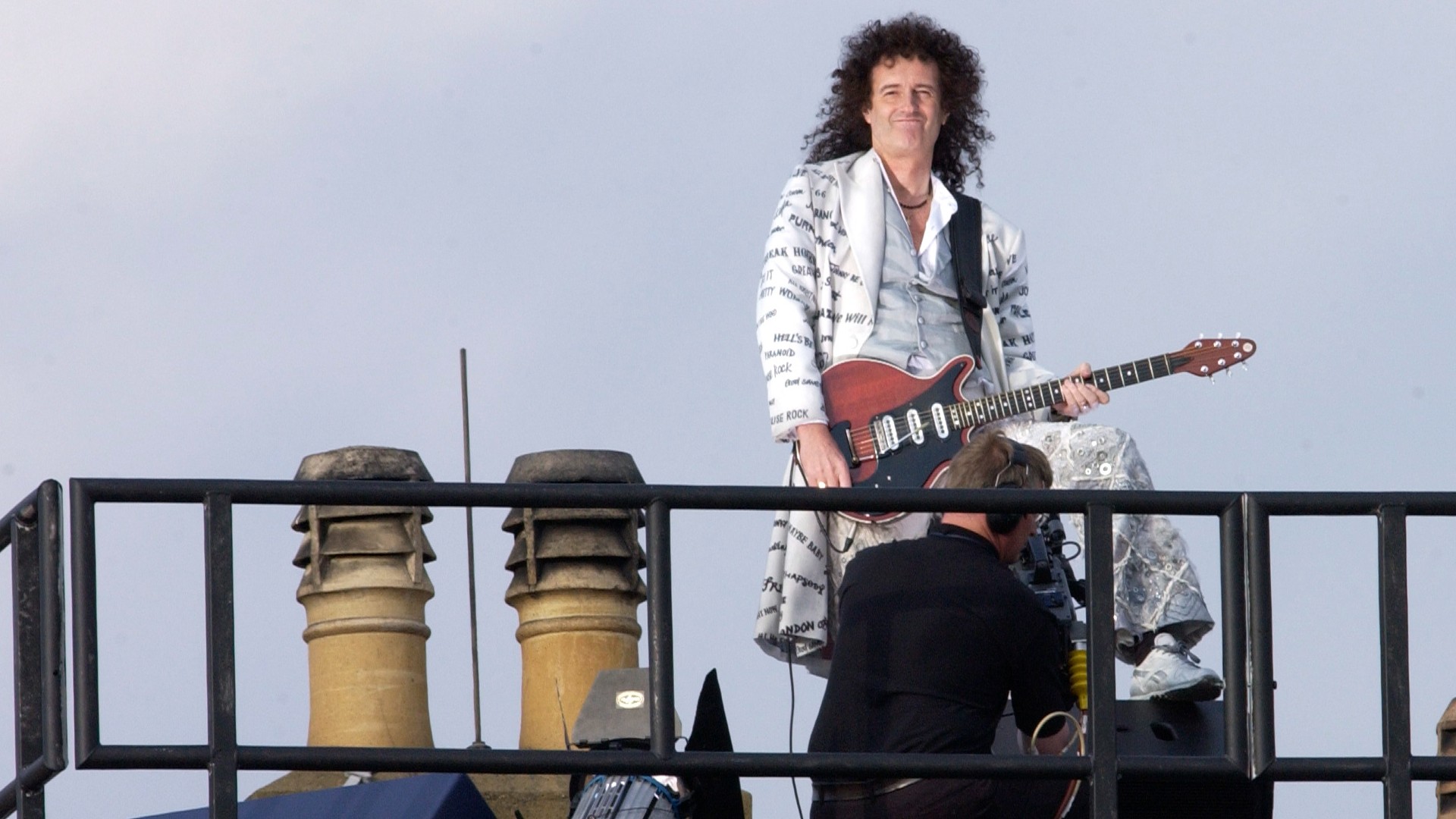
When one thinks of the Royal Family, rock and roll probably isn't a natural association.
However, in 2002, the royals celebrated Queen Elizabeth II's Golden Jubilee with a truly out-there display of modernism - Queen guitarist Brian May rocked out on the balcony of Buckingham Palace in a once-in-a-lifetime display.
The rock legend has described that moment as a career highlight, telling The Guardian, "Standing on the roof of Buckingham Palace, live, without a safety net, in front of one billion people [watching on TV]. Nothing could ever quite top that, really, for sheer management of terror. It’s hard to function, you have so much fear – and it was the whole opening of the golden jubilee, so everything depended on it."
The flags at the palace reveal a lot
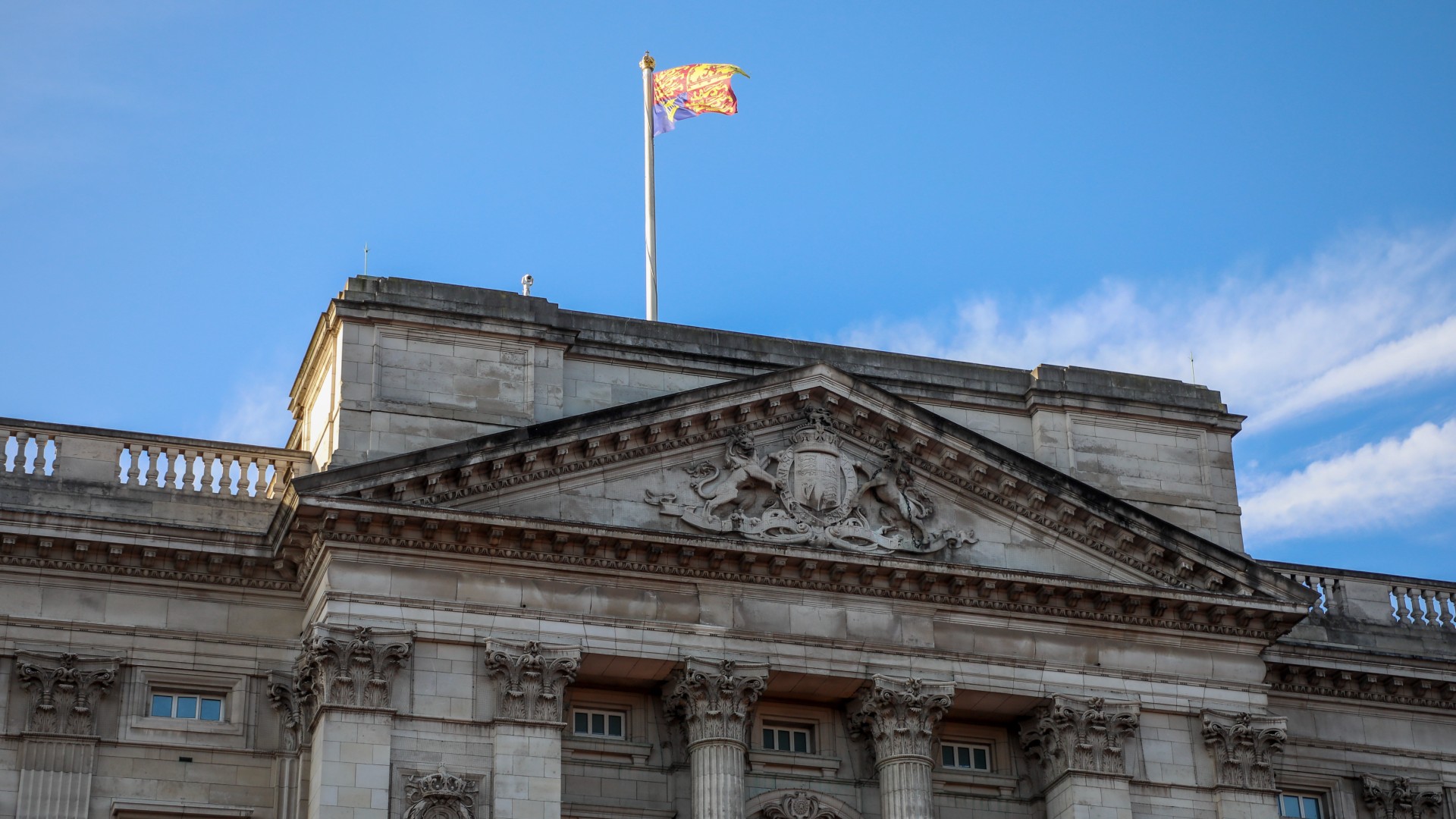
If you find yourself in London and pop to Buckingham Palace, pay attention to the flags flying high overhead.
If the Royal Standard is being flown, it means the King is in. The Royal Standard is only ever flown the Sovereign is present.
If the Union Jack is flying above Buckingham Palace instead of the Standard, The King is elsewhere.
You'll never see the Royal Standard flown at half mast, even after the death of a monarch, as there is always a Sovereign on the throne.
Only once have the palace's flags gone against protocol
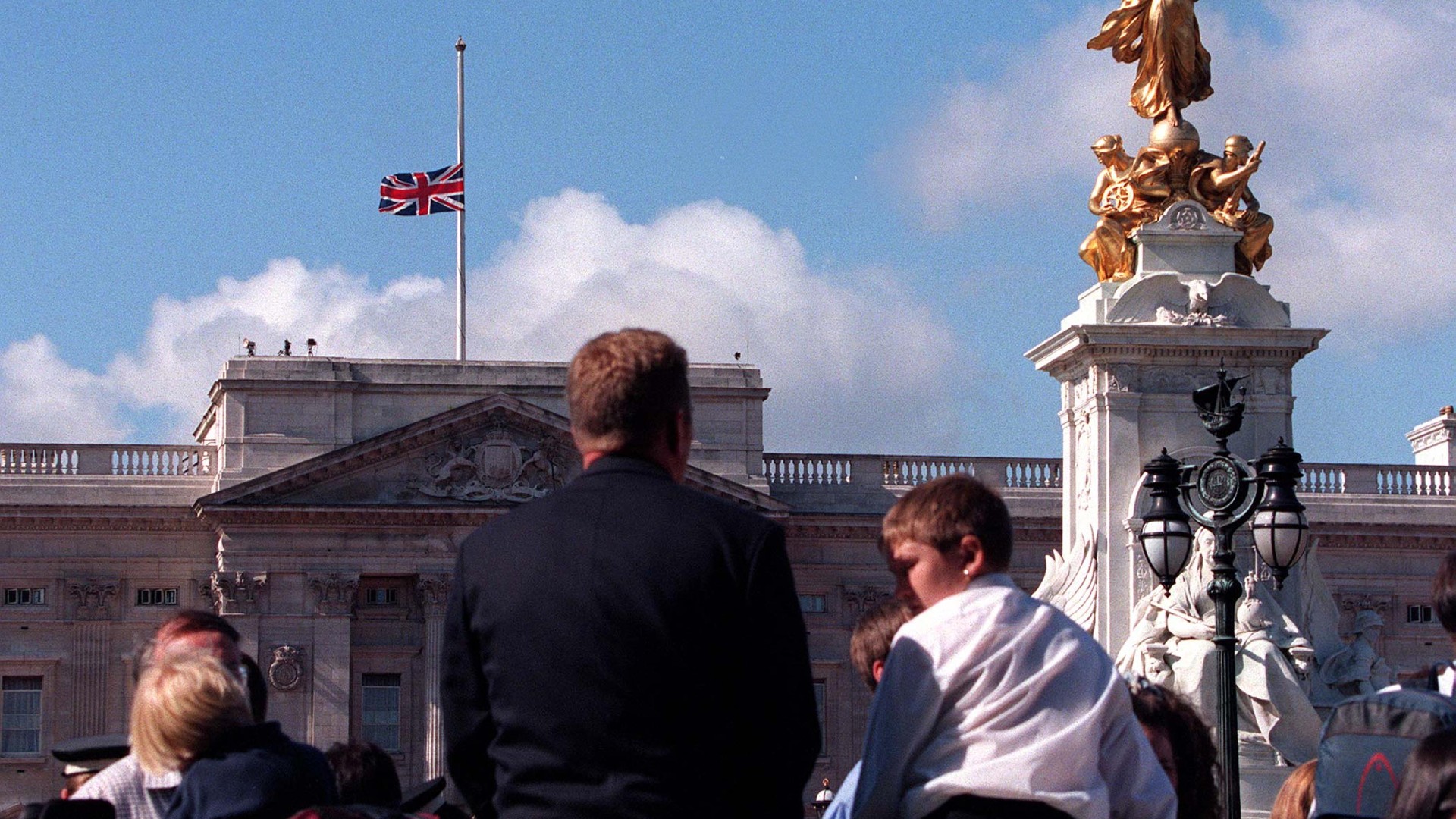
The flag over the palace tells a whole story in itself, but only once in history has the flag caused mass outrage and forced the royals to break with centuries of tradition.
Following the death of Princess Diana in 1997, the late Queen was at Balmoral Castle at the time, so there was no flag flying overhead.
The public felt this was an outrage to the memory of the late Princess of Wales.
Despite no royal being at Buckingham Palace, for the first time ever, the Queen ordered a break with protocol and the Union Flag was flown at half mast over the Palace on the day of Diana's funeral.
Diana's death changed everything - the Union Flag now always flies from the Palace when the monarch is not in residence, and has flown at half mast after the deaths of members of the Royal Family including Princess Margaret and the Queen Mother.
Despite being synonymous with the place, it wasn't the late Queen's favourite home
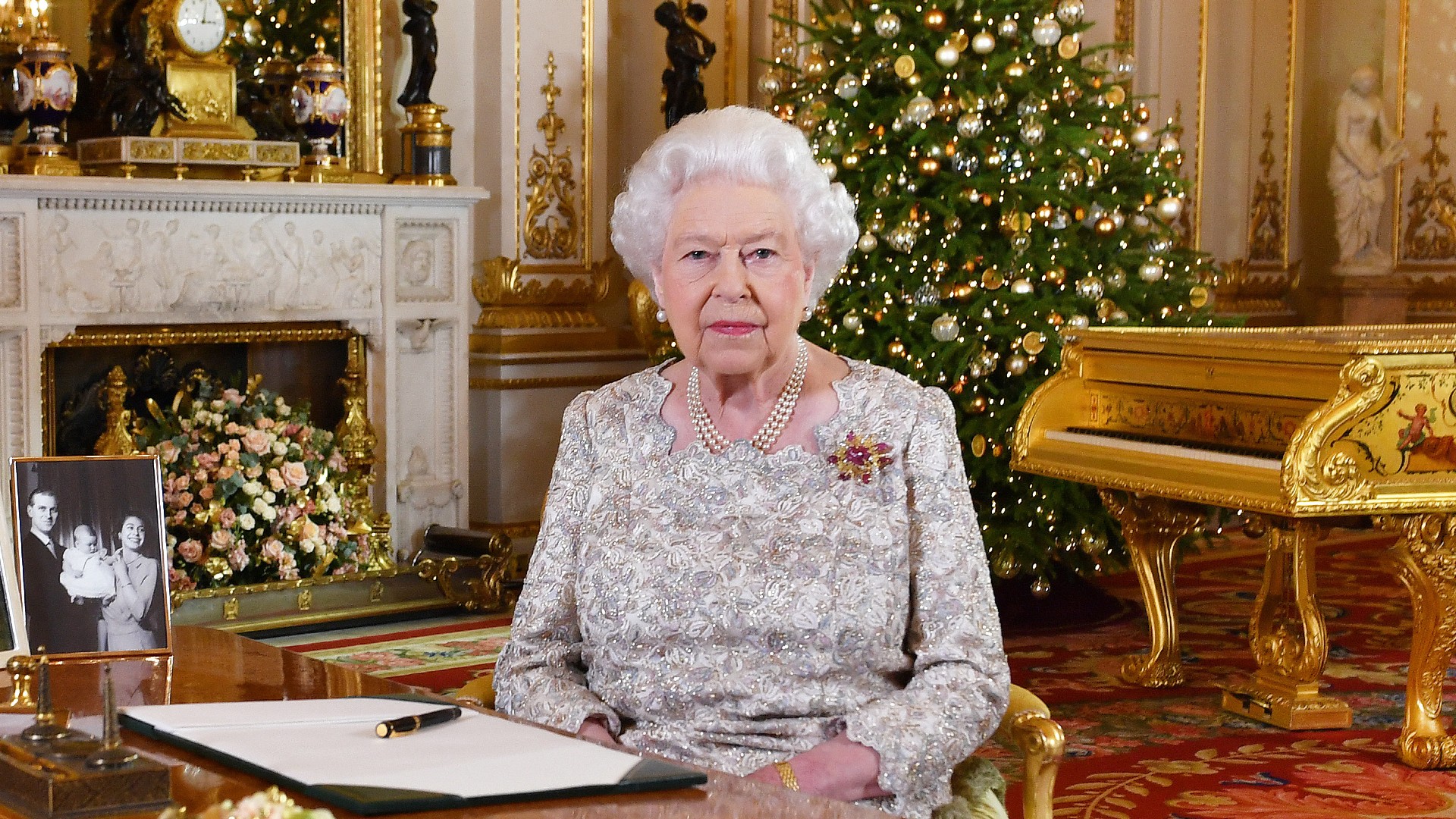
Queen Elizabeth II was Britain's longest-reigning monarch, serving her country for 70 years before her death in 2022.
And for most of that historic reign, Her Majesty would've considered Buckingham Palace home. But she lived there even before her own reign, as her father unexpectedly became King in 1936, following the abdication of her uncle, Edward VIII (the Duke of Windsor).
However, it's reported that Her Majesty was never as fond of Buckingham Palace as she was other royal residences.
When her health started to decline in 2021, she left London and made Windsor her full-time home - but this was something she wished for as early as 1953 (per Tatler), when she wrote to the politician Sir Harold Nicolson and told him that she preferred Windsor to London and Sandringham as "all her happiest childhood memories were associated with the castle and the park."
You can visit Buckingham Palace (and not just stand outside the gates!)
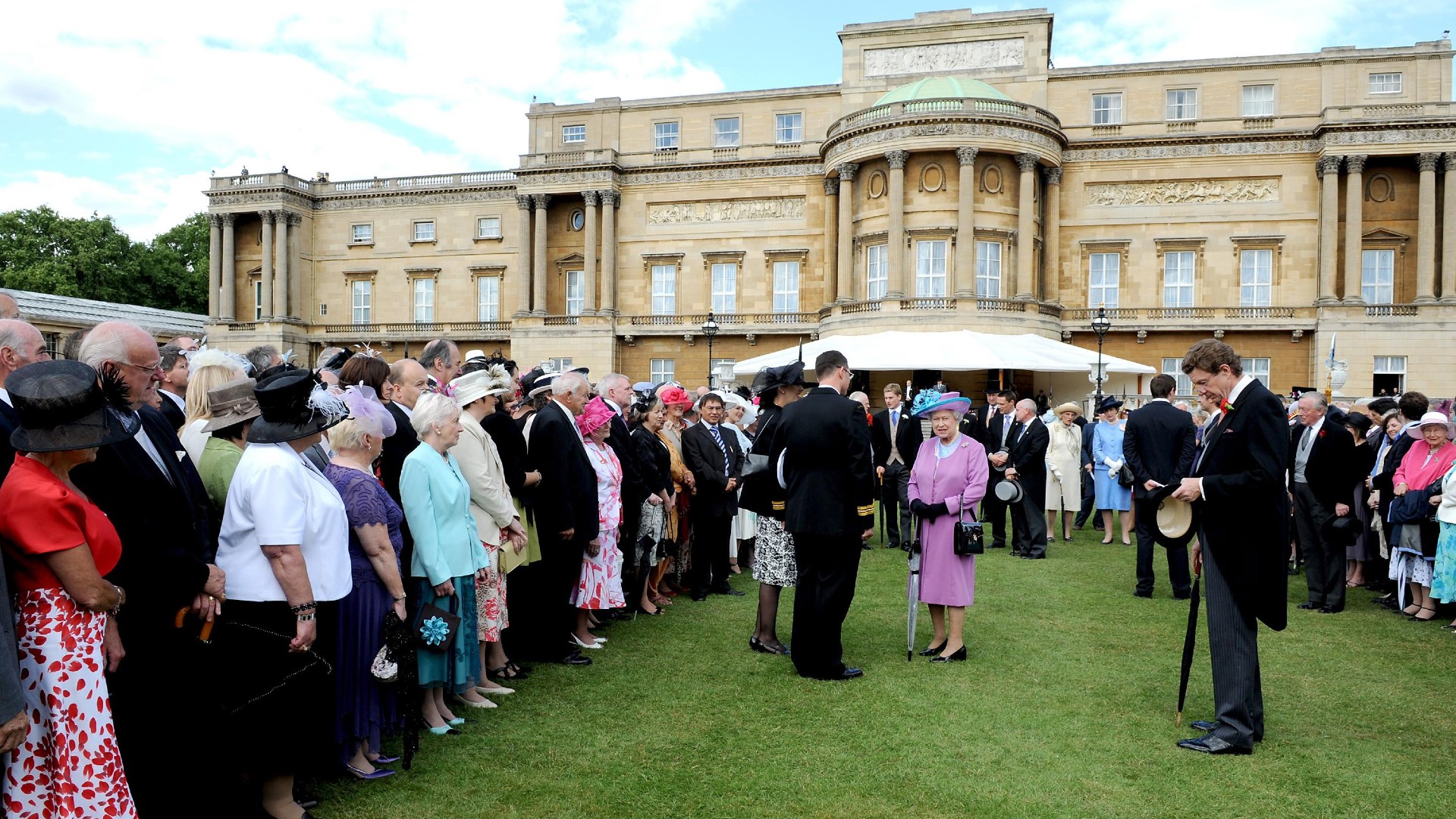
Historic works of art! Huge ballrooms! Lots and lots of lightbulbs! There's so much to amaze and awe at Buckingham Palace that many people wouldn't be satisfied just taking the typical tourist selfie outside the front gates.
Well, you're in luck. Buckingham Palace is open to the public during the summer months and for a limited number of tours in December, January and at Easter each year.
Tickets and experiences can be booked through the Royal Collection Trust website.







